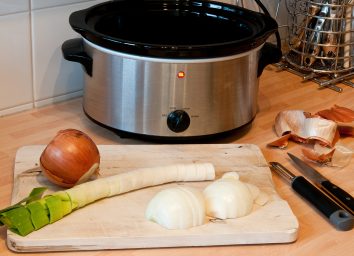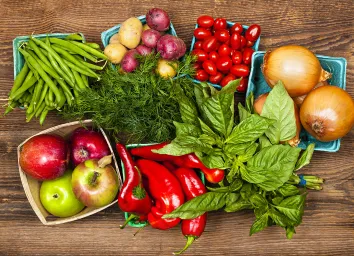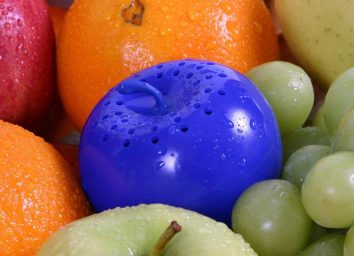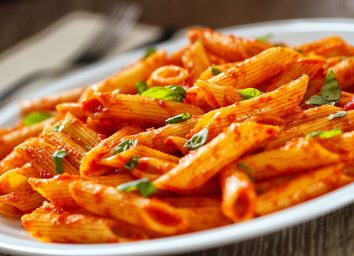50 Worst Cooking Mistakes That Are Ruining Your Food
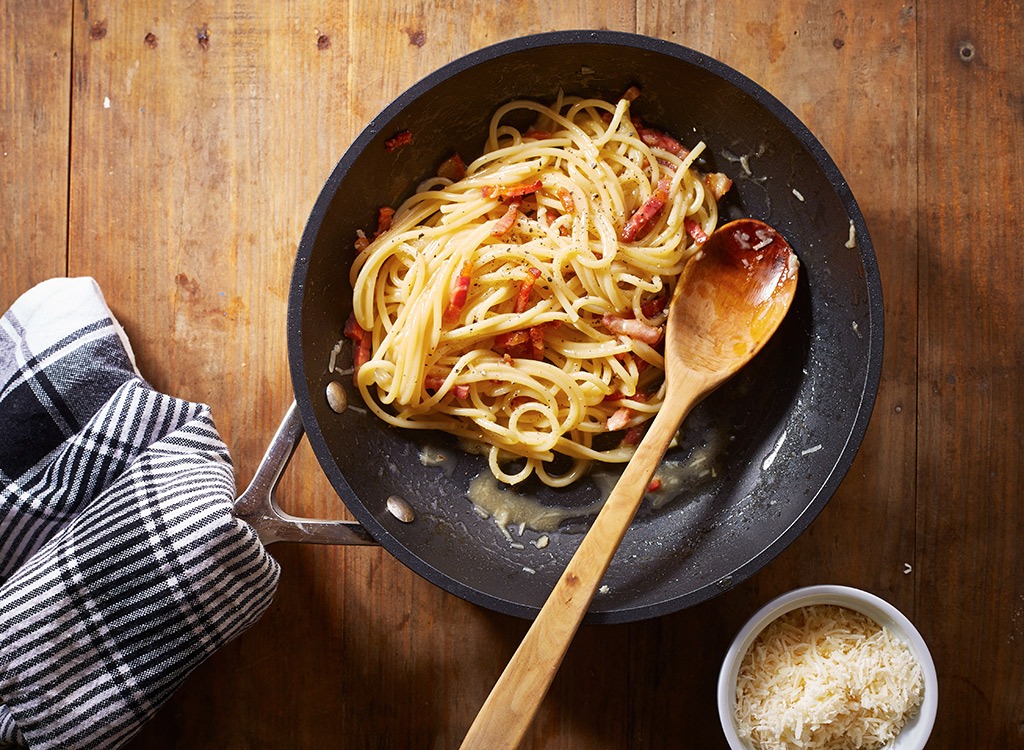
There are few things better than a home-cooked meal, and nowadays, people are spending more time cooking at home than ever before. A 2016 study published in the Nutrition Journal found that home cooking is on the rise with both men and women, and thanks to the ever-expanding market for meal kits and grocery delivery services, it’s only getting easier.
However, if you’re a home chef—whether you’re experienced or just learning the ropes in the kitchen—you might be making crucial cooking mistakes without realizing it, and it could be ruining your food. From serving soggy vegetables to cutting into food too fast, we’ve rounded up the cooking habits you need to stop now, so you can start making your meals better than ever.
And for more, don’t miss these 15 Classic American Desserts That Deserve a Comeback.
Mistake: You’re not preheating your pan.
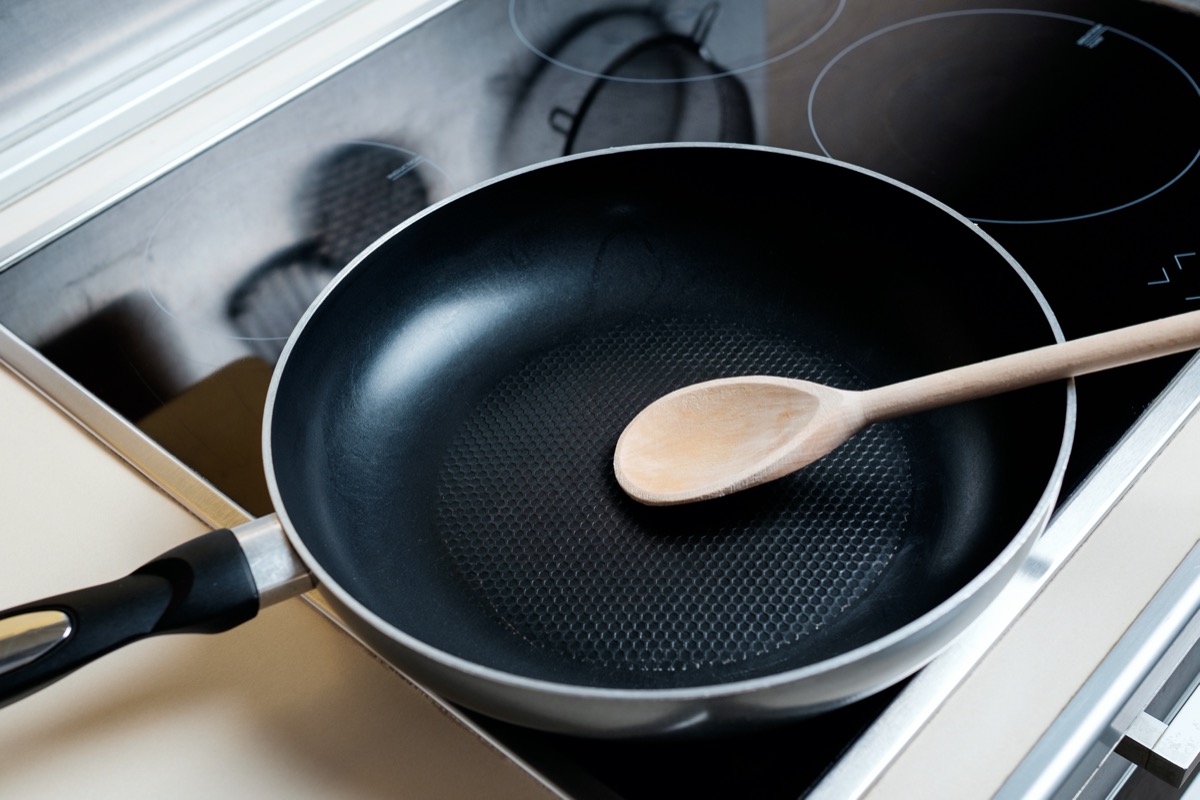
Whether you’re cooking eggs on the stovetop or making roasted vegetables in the oven, starting with a hot pan is crucial. If you haven’t heated your pan before you add your ingredients, it will take longer for the dish to cook, and it will also increase your risk of overcooking your food (and who wants that?).
And if you love cooking, sign up for our newsletter to get daily recipes and food news in your inbox!
Mistake: You overmix your dough.
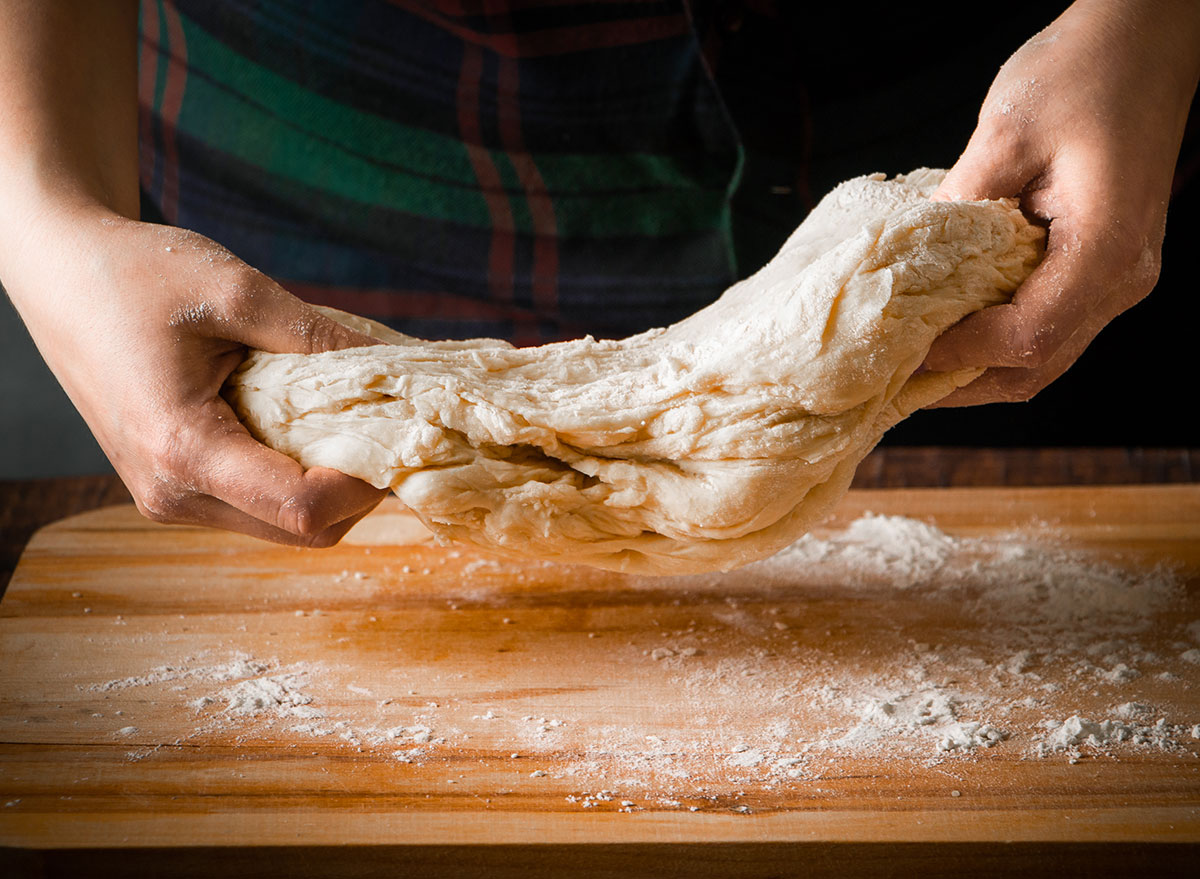
While finding little pockets of flour or baking soda in your baked goods is far from ideal, over-mixing is an equally egregious error. Over-mixing dough squashes the tiny air pockets that give baked goods their fluffiness and can cause the resulting product to become tough.
Mistake: You add dairy to your slow cooker recipes too early.
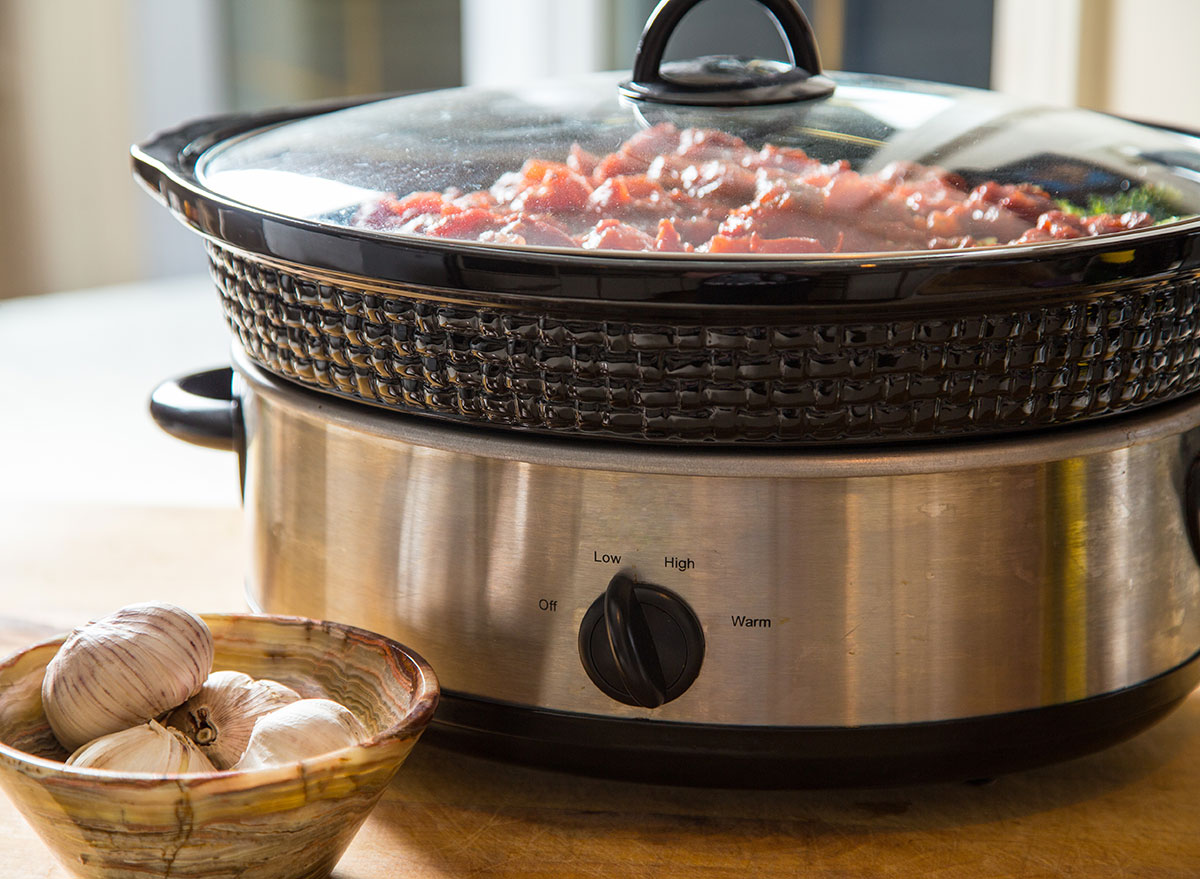
Making creamy soups is a tricky business, especially if you don’t know when to add your dairy ingredients. If you’re making a slow cooker recipe that calls for dairy, make sure you add it at the end. If you incorporate milk, sour cream, or cream cheese any earlier, you risk it curdling in the pot.
Mistake: Not spinning your salad.
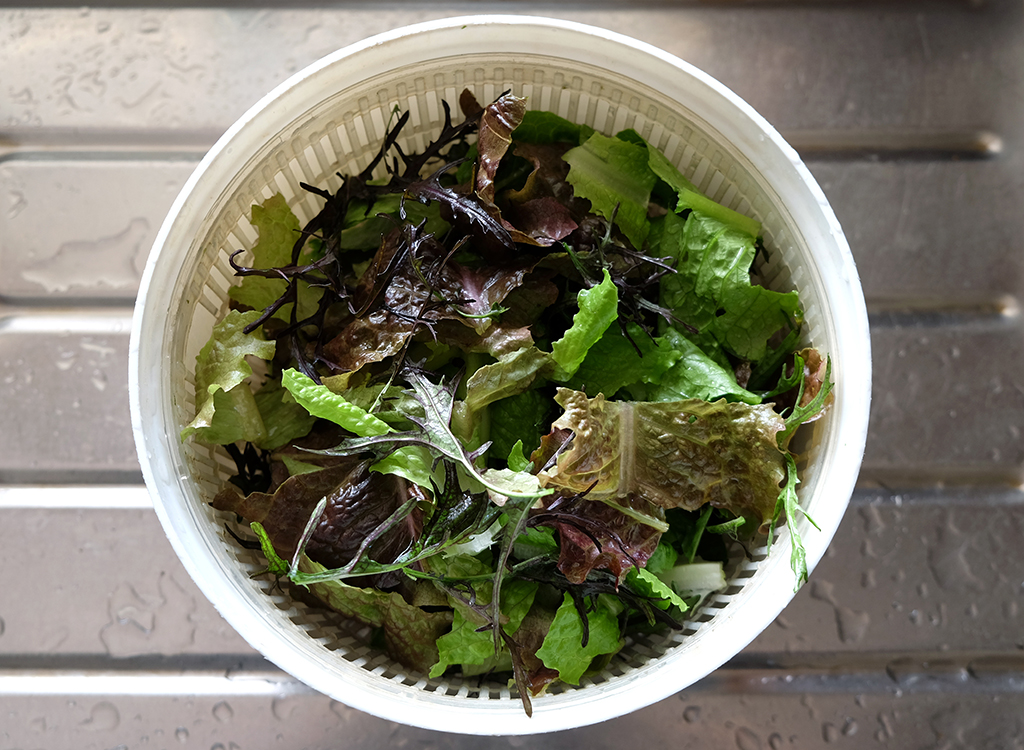
A watery salad is a sad salad. Before you serve another lackluster, wilted salad sitting in an inch of water, invest in a good salad spinner. Drying your greens with paper towels rarely wicks away enough moisture from your veggies, and a salad spinner can help you save a few trees in the long run, too.
Mistake: Cooking food while it’s still frozen.
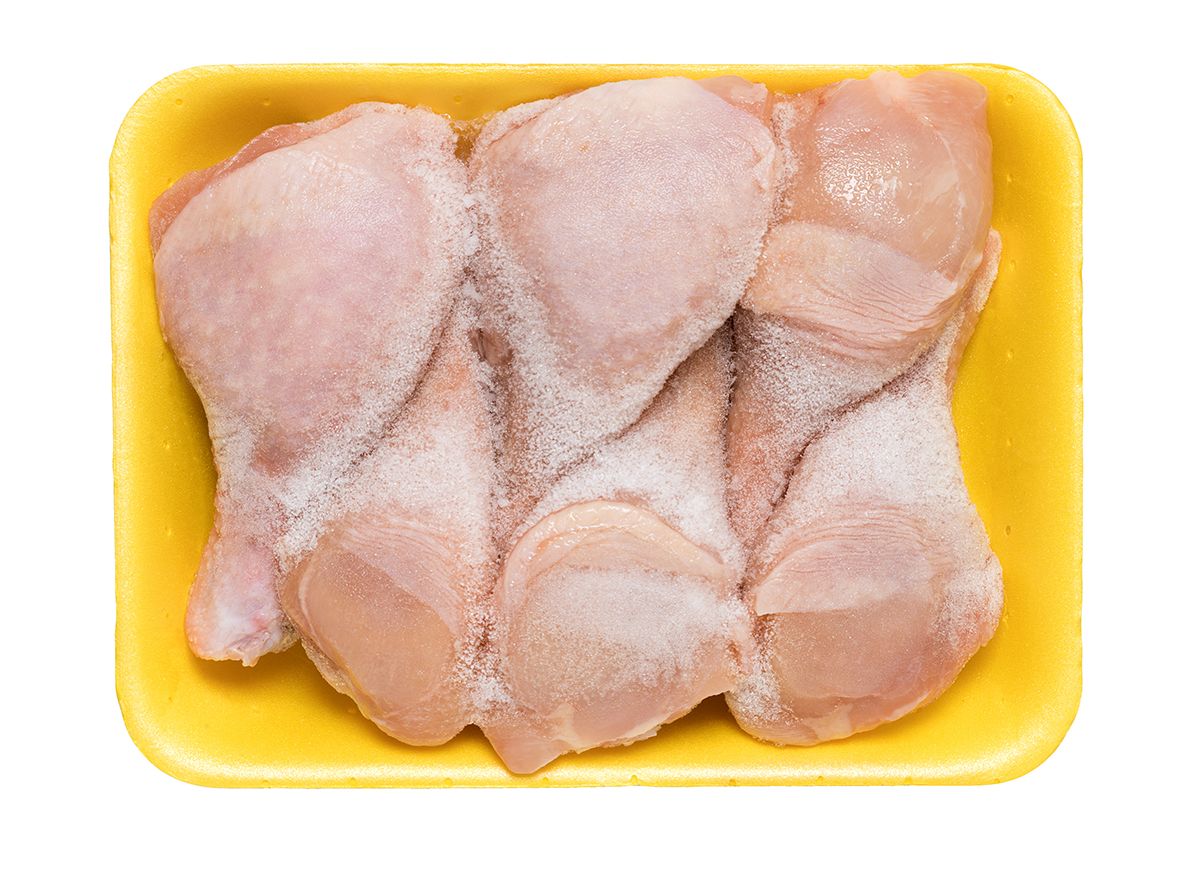
While it may seem like cooking food from its frozen state will save you time, all it will do is make your meals mushy. If you’re cooking frozen food, you’re essentially steaming it in its moisture first, causing it to be a soggy mess. For the best results, either defrost frozen food in the microwave or allow it to come to room temperature and drain any excess moisture before it hits your pan.
Mistake: Cooking wet vegetables.
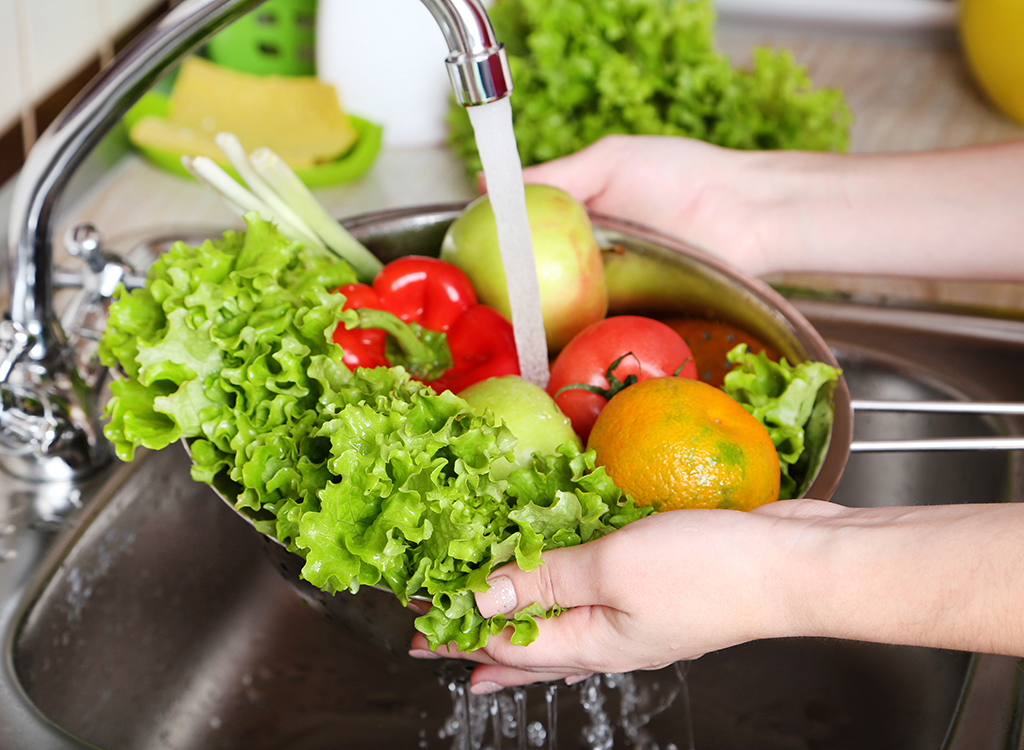
If your freshly-washed vegetables are going into the oven wet, don’t be surprised when they result in a soggy meal. To make sure your vegetables roast properly, dry them off before they hit the pan to ensure they’ll be perfectly browned when you take them out.
Mistake: Winging it when baking.
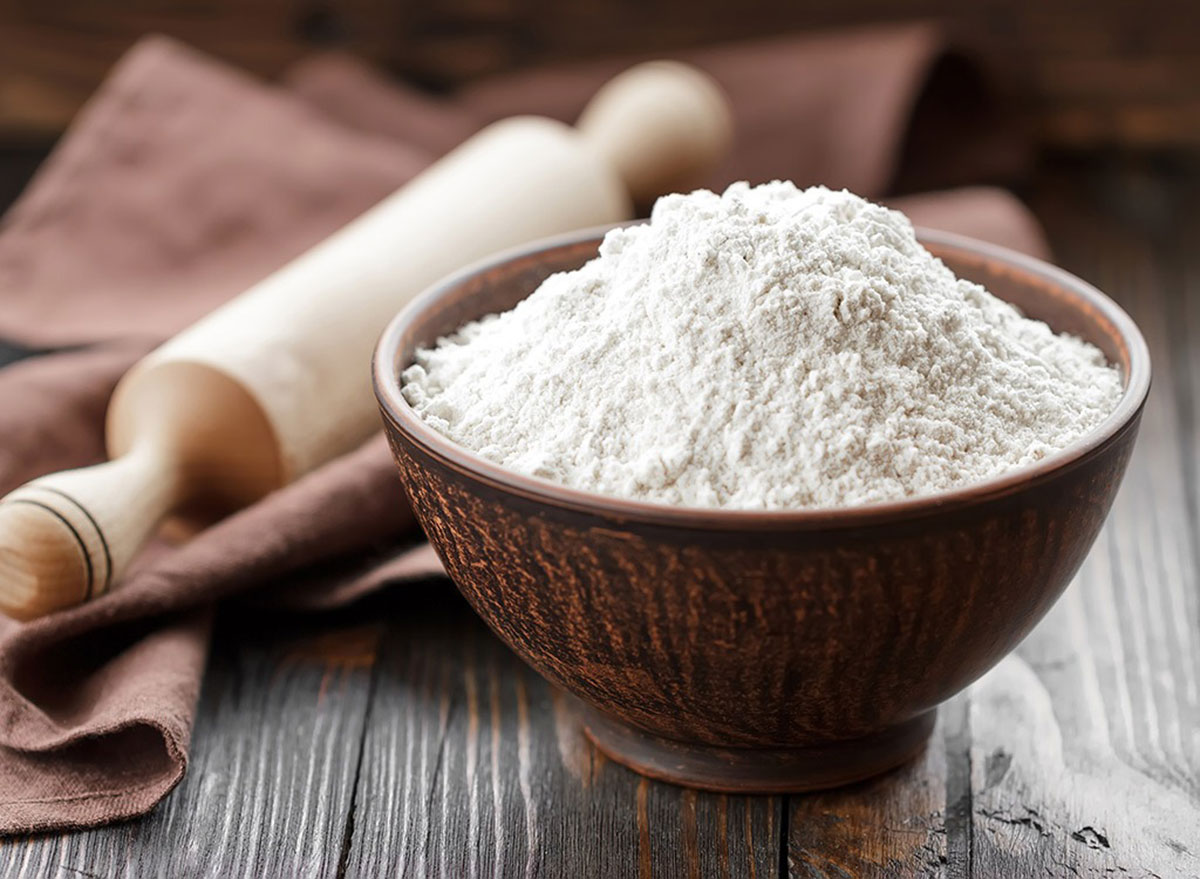
Winging it while baking just doesn’t work. If you’re baking, using exactly the right amount of any given ingredient and following recipes to a T is the difference between delicious baked goods and inedible ones.
Mistake: Using cheap wine.
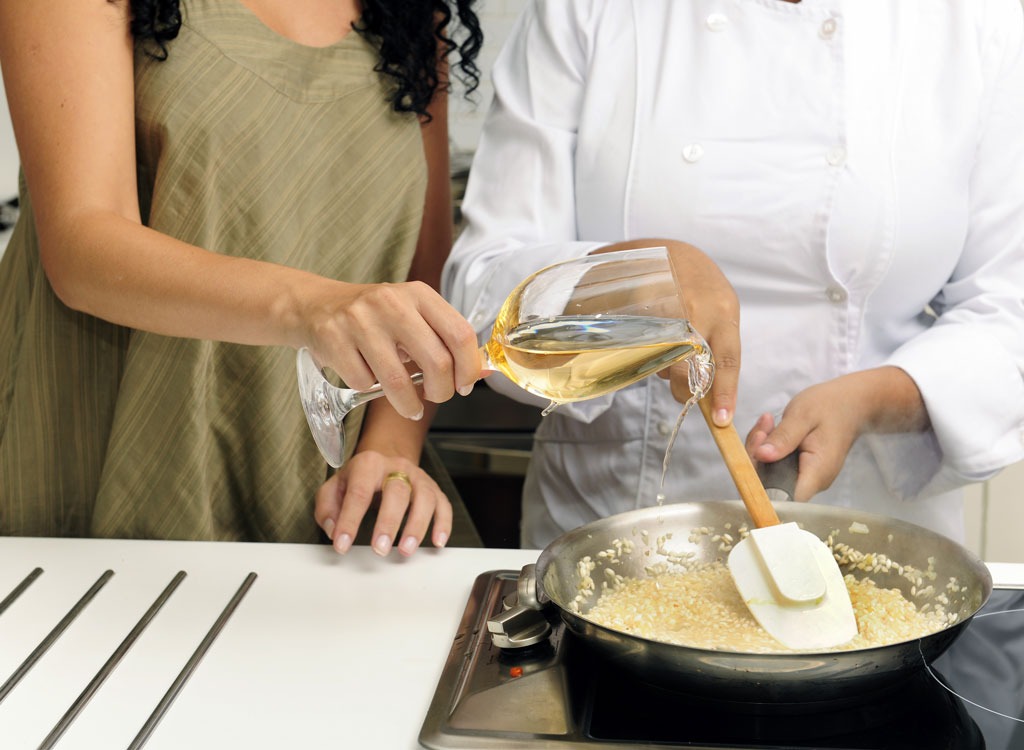
Take this motto to heart: If you wouldn’t pour yourself a glass of it, don’t cook with it. Bad wine, especially wine that’s taken a turn to the vinegary side, won’t taste much better in a recipe than it does in a glass. While this doesn’t mean you should pour an expensive vintage into your pasta sauce, you should make sure any wine you use in your cooking is palatable on its own.
Mistake: Cooking meat right out of the package.
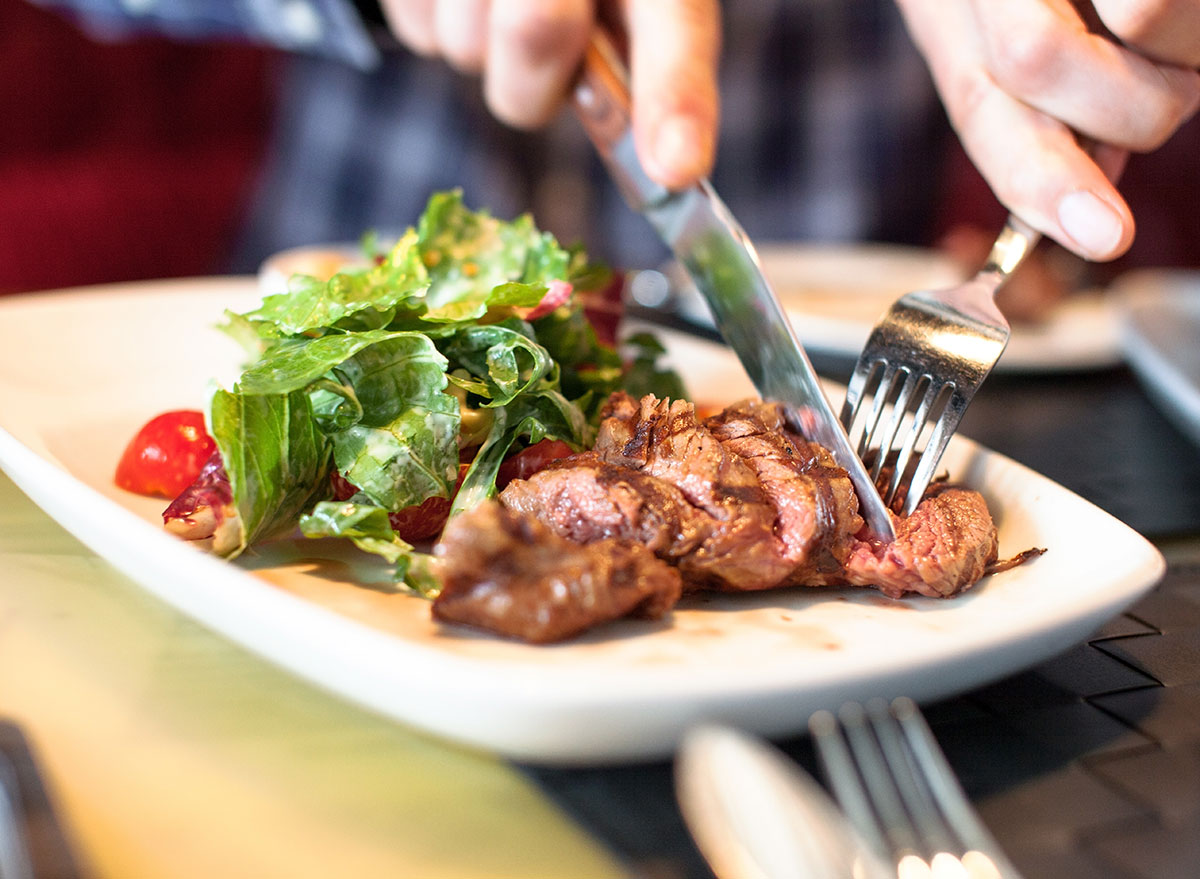
Slapping a steak on the grill straight from the fridge is a great way to ruin it. To ensure proper char and even cooking, you’ll want to bring your meat to room temperature and dry off any excess moisture before heating it.
Mistake: Cutting meat right off the stove.

When your steak is cooked, give it a little time to breathe before digging in. When a steak is exposed to heat, the liquid within it collects toward the center of the cut. However, if you let your steak sit for a few minutes after removing it from a heat source, this liquid has time to redistribute and reabsorb throughout the steak, keeping more moisture in your meat and less on your plate in the long run. It’s the trick between a juicy steak and a rubbery one.
Mistake: Using dried herbs in place of fresh ones.
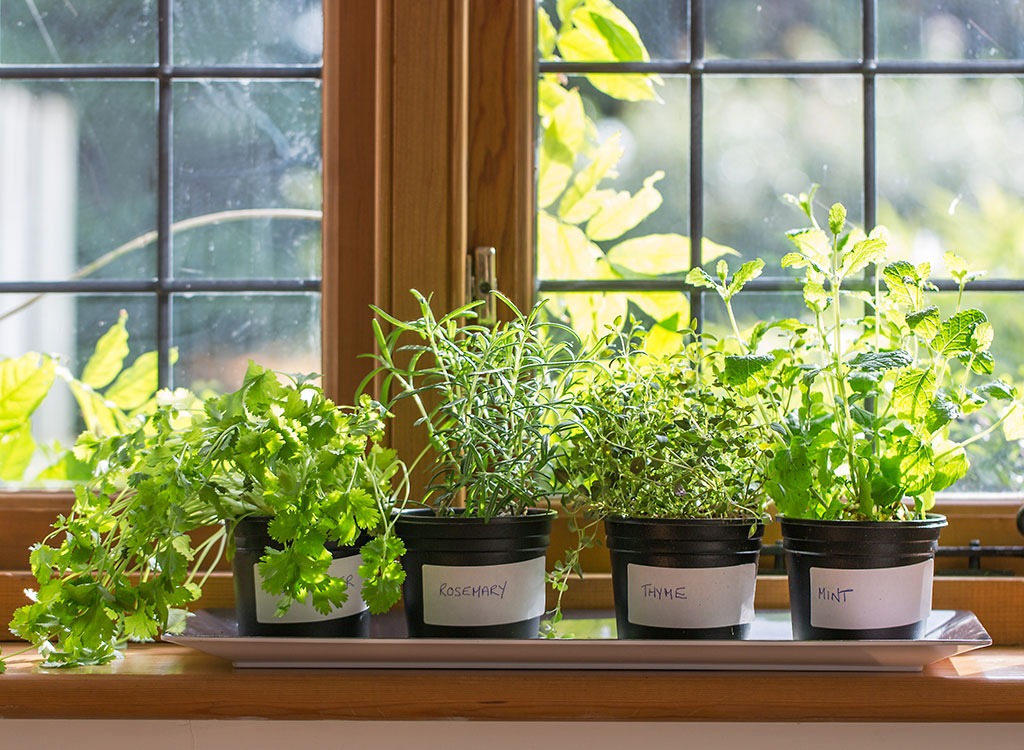
Dried herbs and spices can be lifesavers when you’re cooking, but they shouldn’t be used interchangeably with fresh ones. Dried herbs contain less moisture than their fresh counterparts and have a more concentrated flavor. If a recipe calls for a teaspoon of fresh sage and you use a teaspoon of dried sage, you’ll end up over-seasoning your dish.
Mistake: Seasoning food at the end.
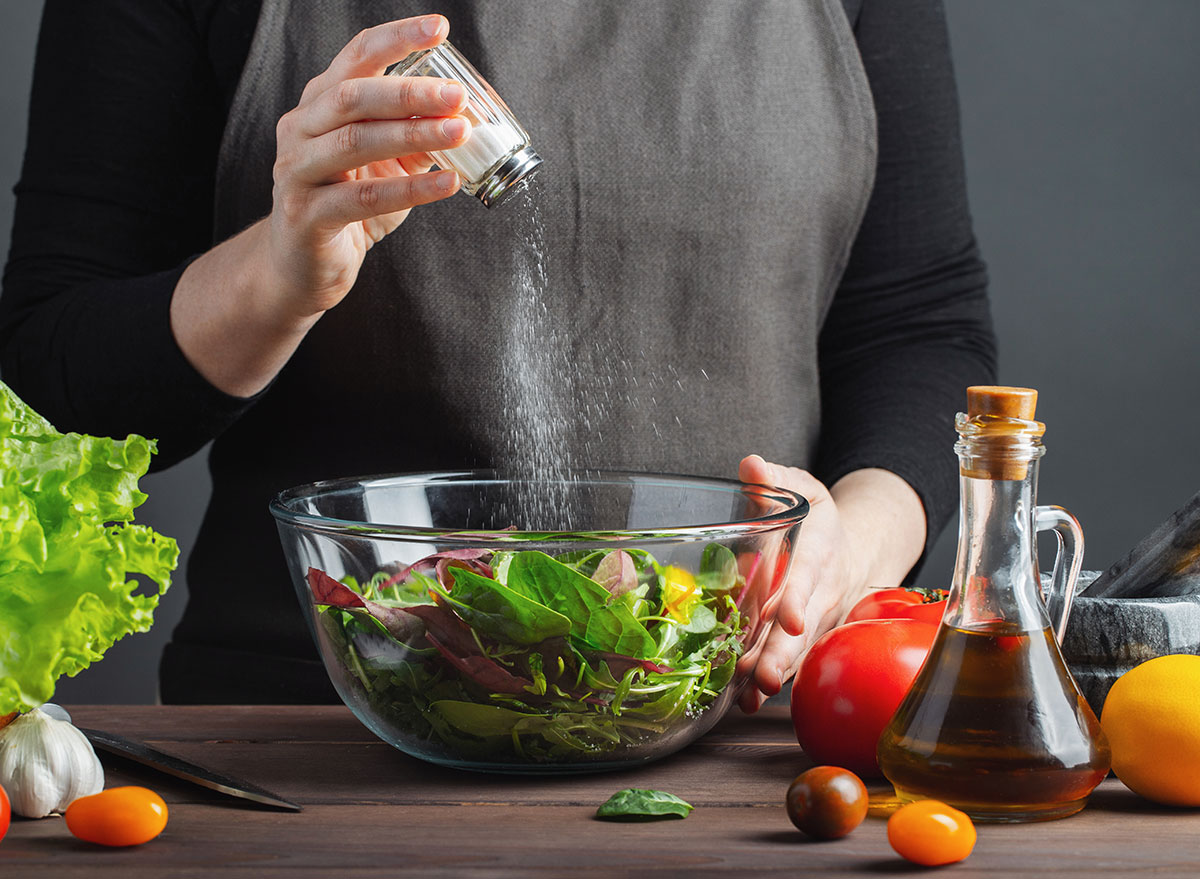
If you want a delicious, perfectly seasoned meal, don’t wait too long to add your herbs and spices. Seasoning at the end of the cooking process means that those seasonings won’t have a chance to develop into more complex flavors by melding with your recipe’s other ingredients. What’s worse, in many cases, those herbs and spices won’t incorporate at all, making your dish taste too spicy or salty that it’s practically inedible. Adding them in throughout helps them better marinate with all the other flavors, so your garlic shrimp don’t taste like you’re eating a spoonful of garlic.
Mistake: Not stirring your pasta soon enough.
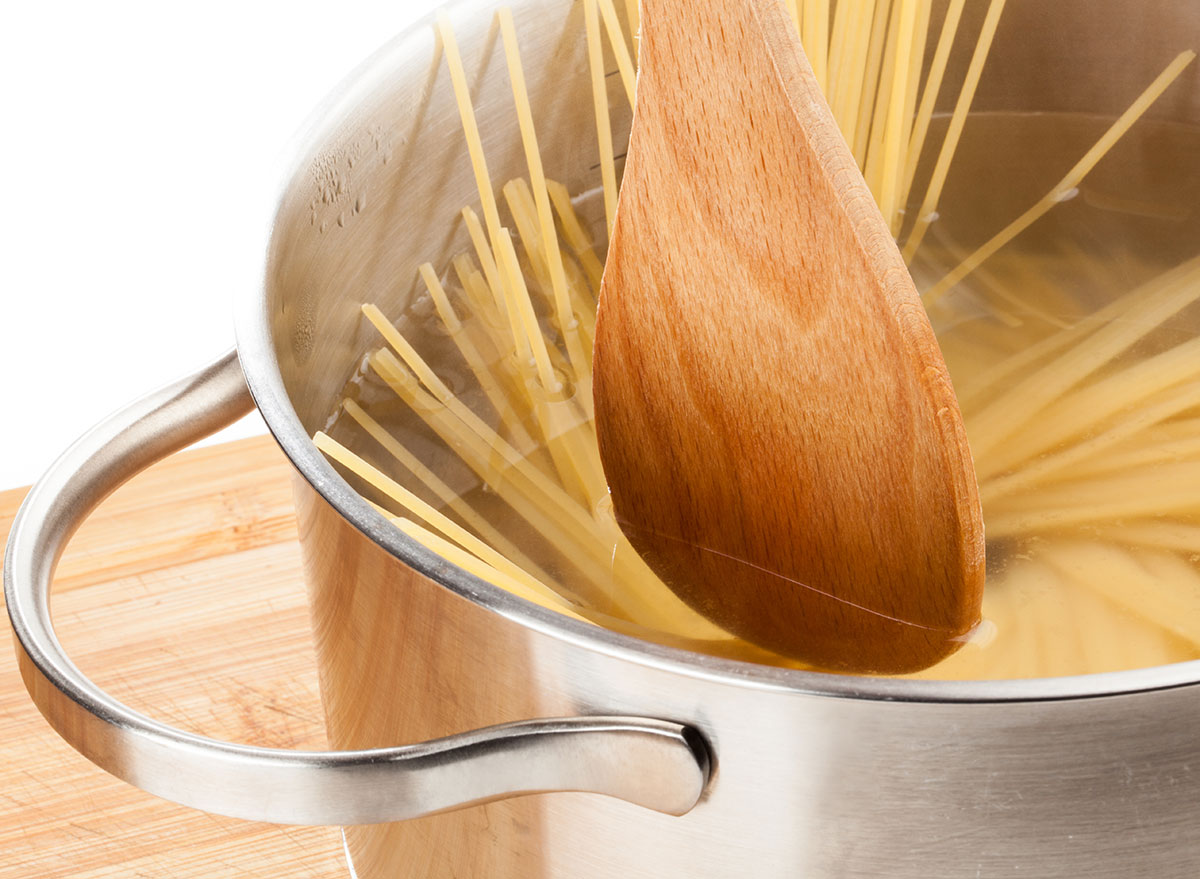
You probably already know that you need to stir your pasta to keep it from sticking, but chances are, you’re letting it sit for too long and you turn your attention to other things before giving it a good stir. According to the experts at Italian food manufacturer Delallo, pasta is more likely to stick together at the beginning of the cooking process before the starches are released into the water. The Delallo specialists say you should stir your pasta within the first two minutes of cooking, instead of waiting until you see clumps forming.
Mistake: Adding oil to your pasta water.
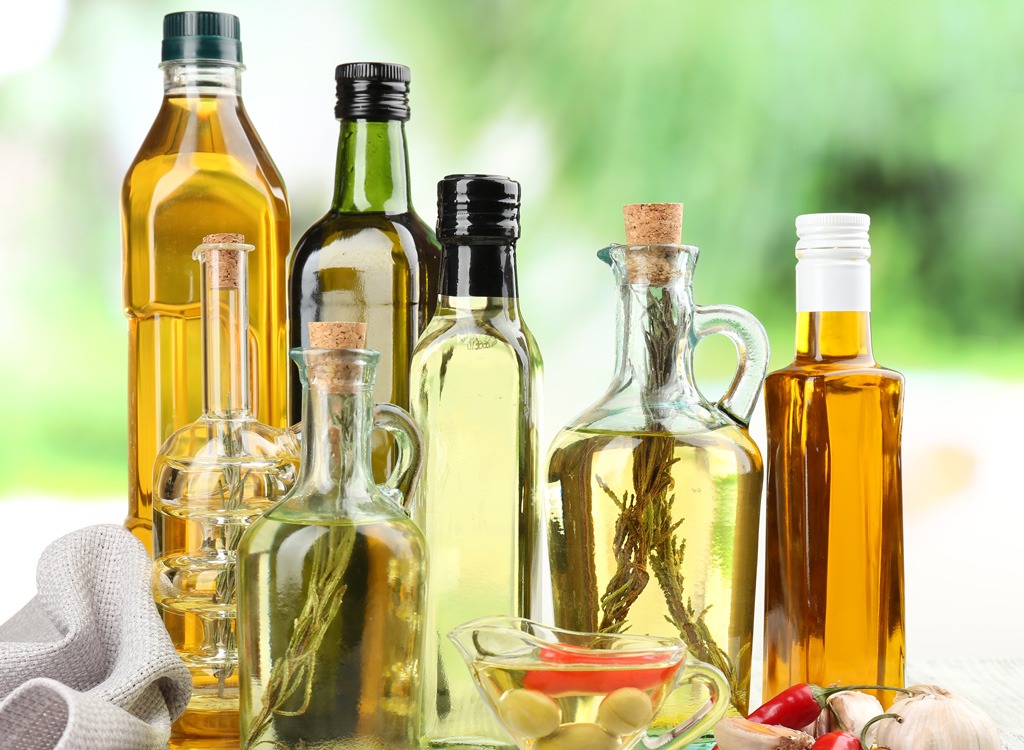
When it comes to cooking pasta, some people add olive oil to the water to stop the pot from boiling over or to try and prevent the pasta from sticking together, but that’s a cardinal sin in Italian cooking. The reason? The oil can make it tough for the sauce to stick to your pasta, so you’ll be left with slimy noodles and no sauce.
Instead, reach for the salt. Make sure you add the salt as the water is getting ready to come to a boil before you add the pasta to the pot. This is one of the rare instances when you don’t want to go too easy on the salt shaker, as the salt is what lends flavor to the pasta.
Mistake: Using the wrong amount of liquid in your Instant Pot.
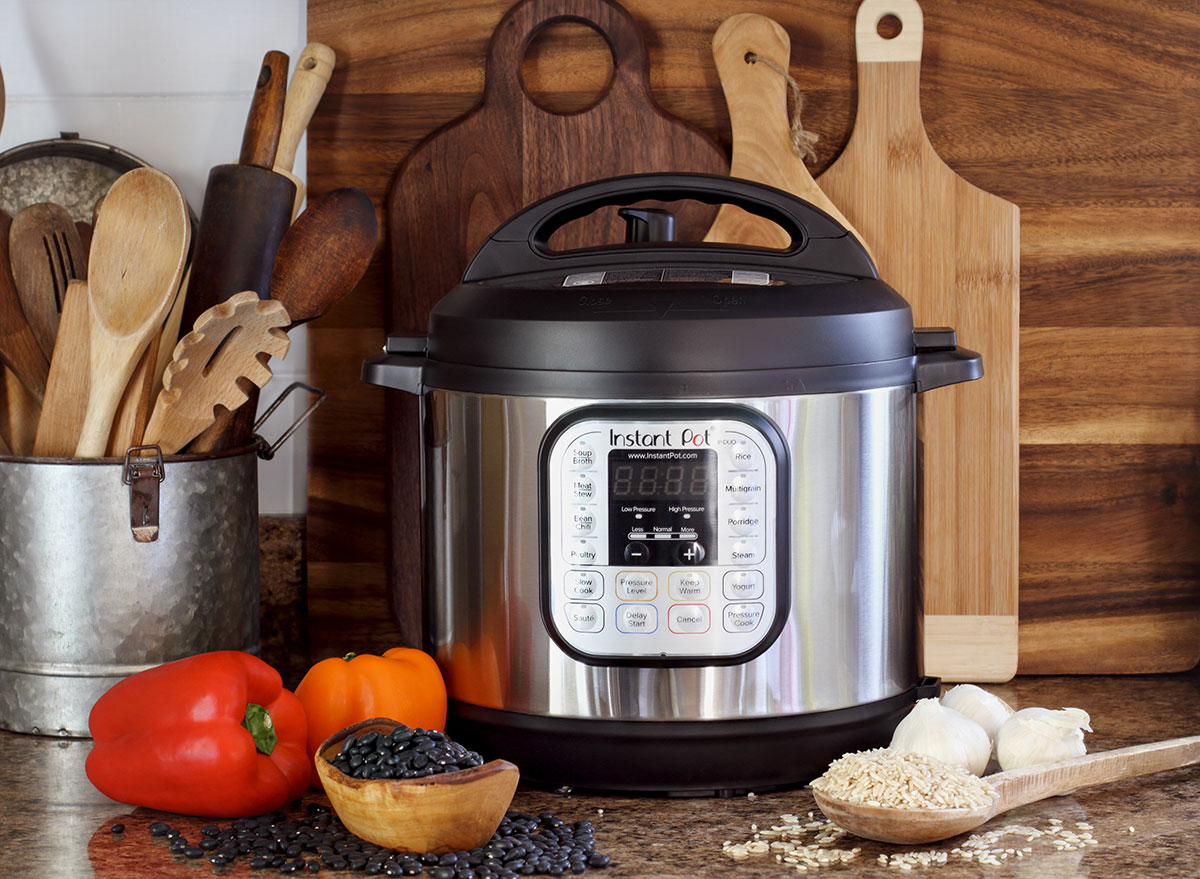
Instant Pots are supposed to make your meal prep time easier, but it can take some getting used to figuring out the right amount of liquid to add to it for perfect meals. While not using enough liquid is a major “don’t” because it can cause your food to burn in the Pot, adding too much liquid is also a problem. When it’s too watery, you probably won’t get an error message that your machine can’t build pressure like you would with too little liquid—but your Instant Pot meal is bound to turn out flavorless, something worse than eating burnt food. Just play Goldilocks and get the amount just right. Depending on the type of Instant Pot you have, there’s usually a minimum requirement of around one and a half to two cups of liquid.
Mistake: Overcrowding your pan.
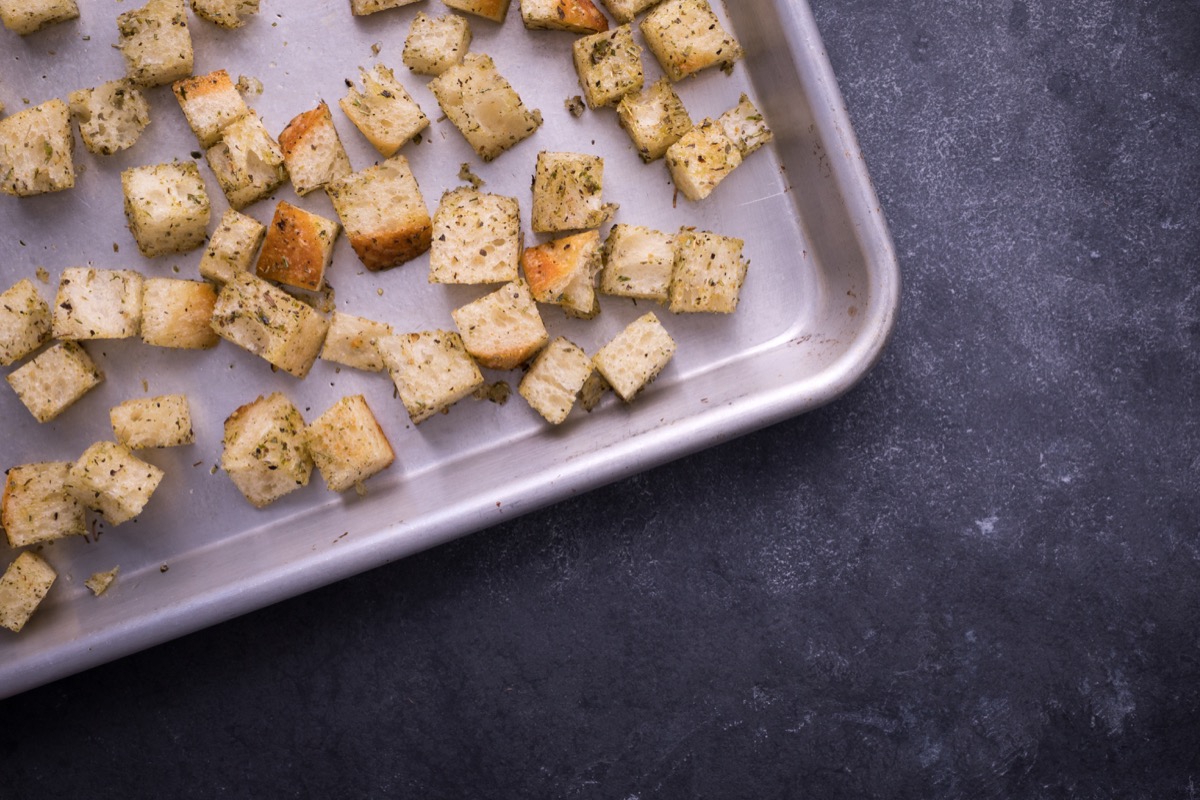
Yes, it’s frustrating when not everything fits in a single sheet pan. But if your meats and veggies are too close together, they won’t cook evenly, which could affect your entire meal.
Mistake: Cooking bacon at high heat.
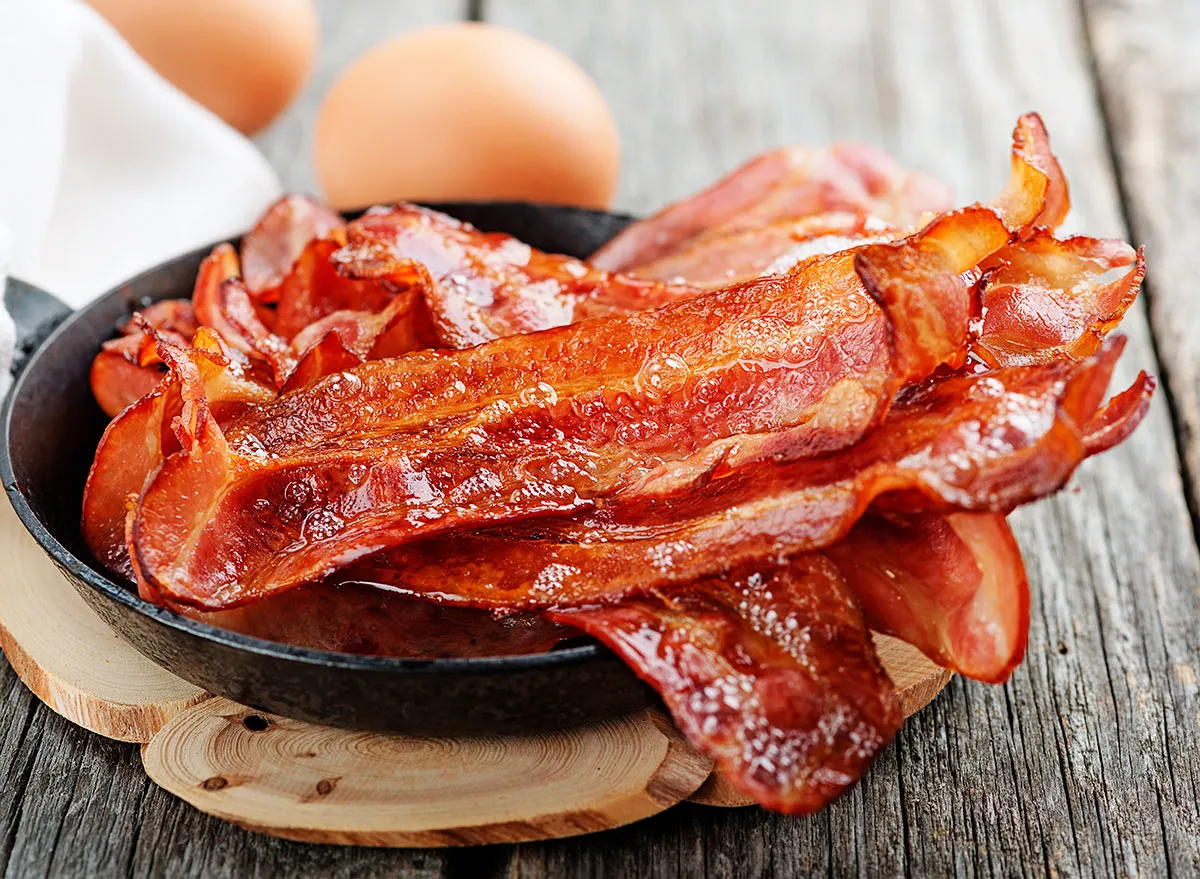
If you love adding bacon to your dishes, you might be tempted to throw those bacon slices onto a super-hot pan on the stovetop. But if you overheat bacon, it could burn. Your best bet is to start with your bacon on low heat and increase the heat as it starts cooking.
Mistake: Not saving bones and rinds to make stock.
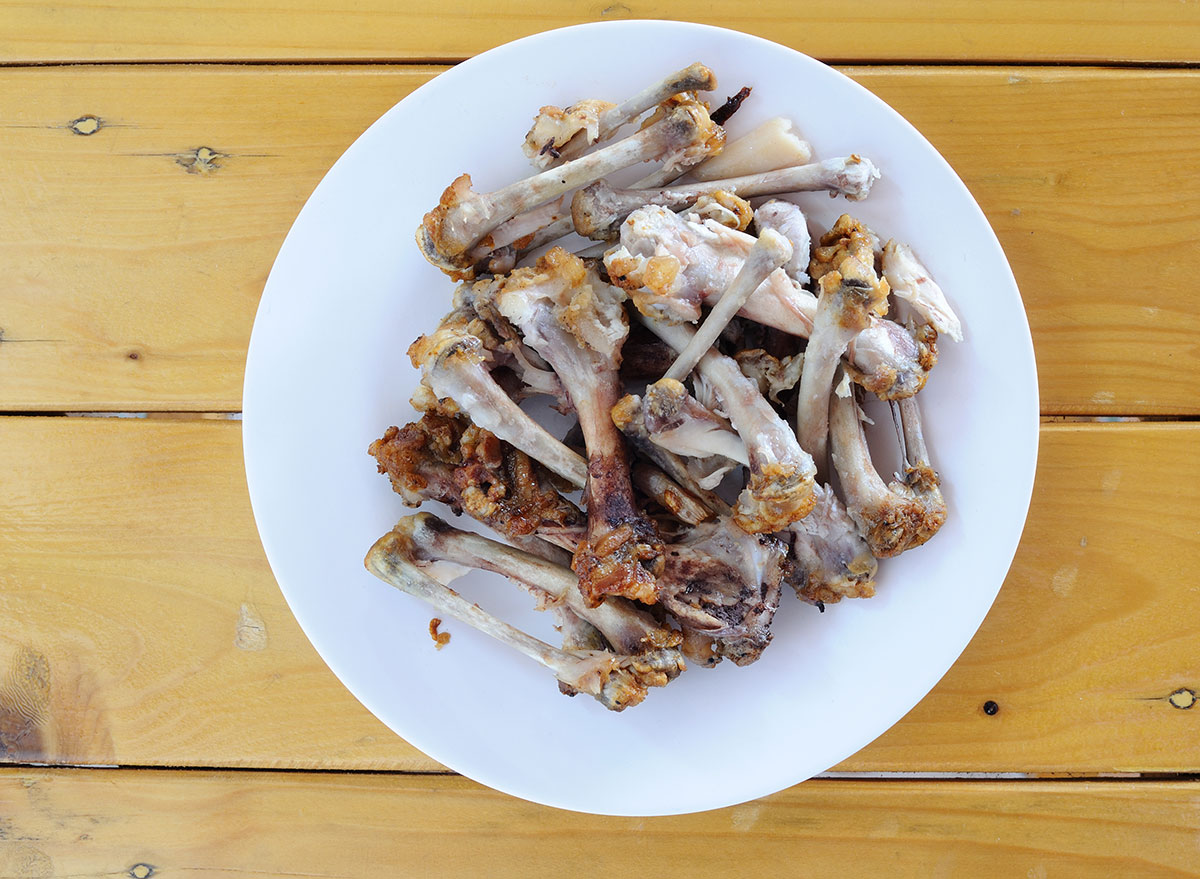
Don’t throw away that Parmesan rind or toss those chicken bones! You can use them to make chicken stock or use the cheese remnants to flavor a homemade pot of soup.
Mistake: Pouring cooking oil or grease down the drain.
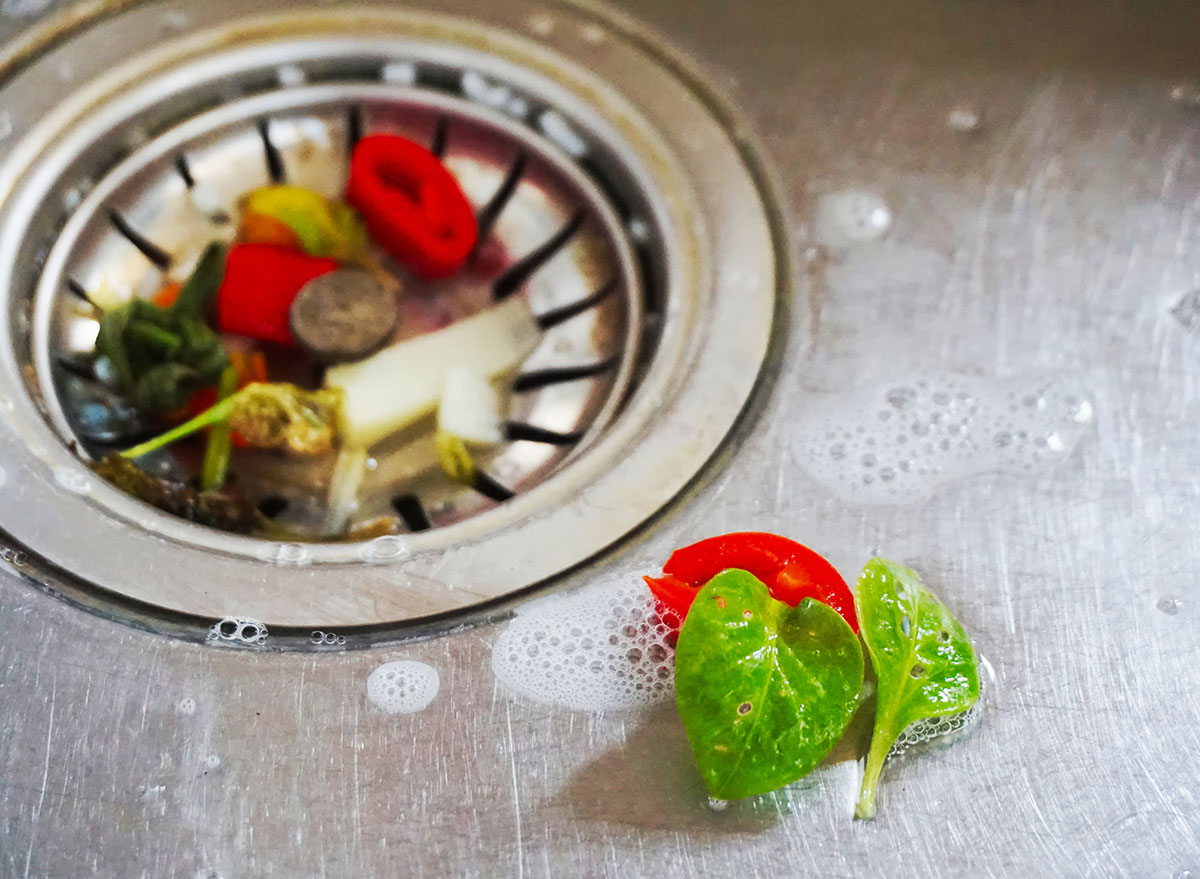
Unless you want to contribute to a dangerous fatberg in your local sewage system, don’t pour grease into your garbage disposal. Instead, pour grease and fat into a cup and toss it once it’s cool.
Mistake: Not checking the color of your chicken.
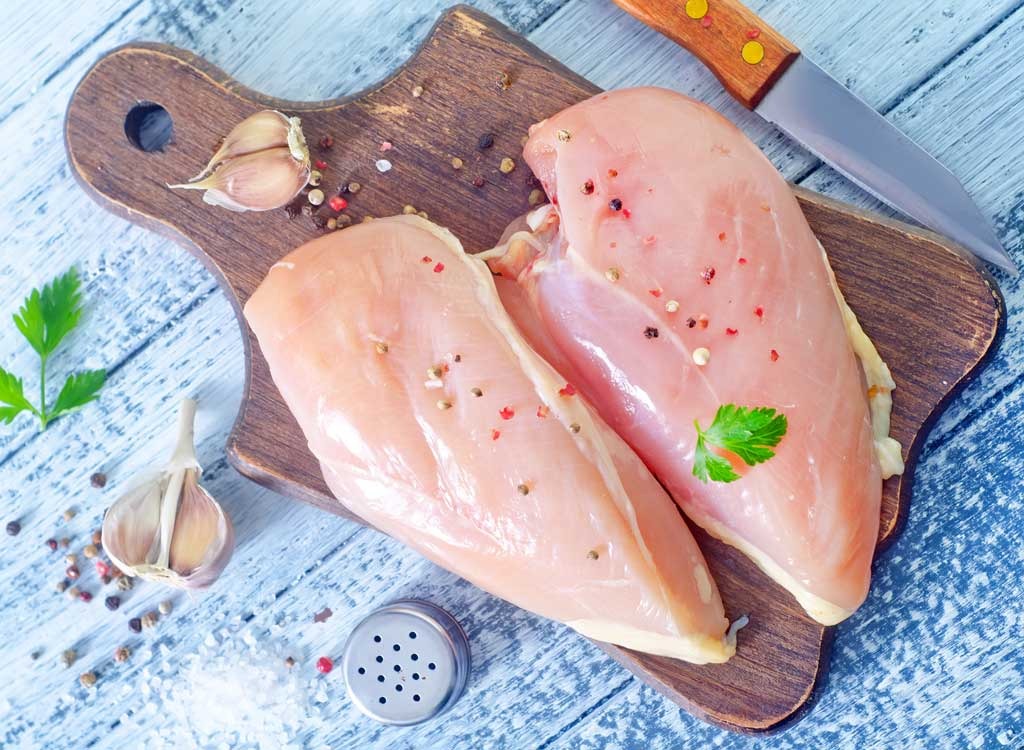
When you’re buying raw chicken, there’s a simple way to make sure the package you choose is fresh. “Fresh, raw chicken should have a pink, fleshy color. As it starts to go bad, the color fades to a shade of gray,” Claudia Sidoti, chef, food industry leader, and member of the Eat This, Not That! Medical Expert Board who’s opening a restaurant in upstate New York this summer, previously said to EatThis.com.
Mistake: Not tenderizing meat.
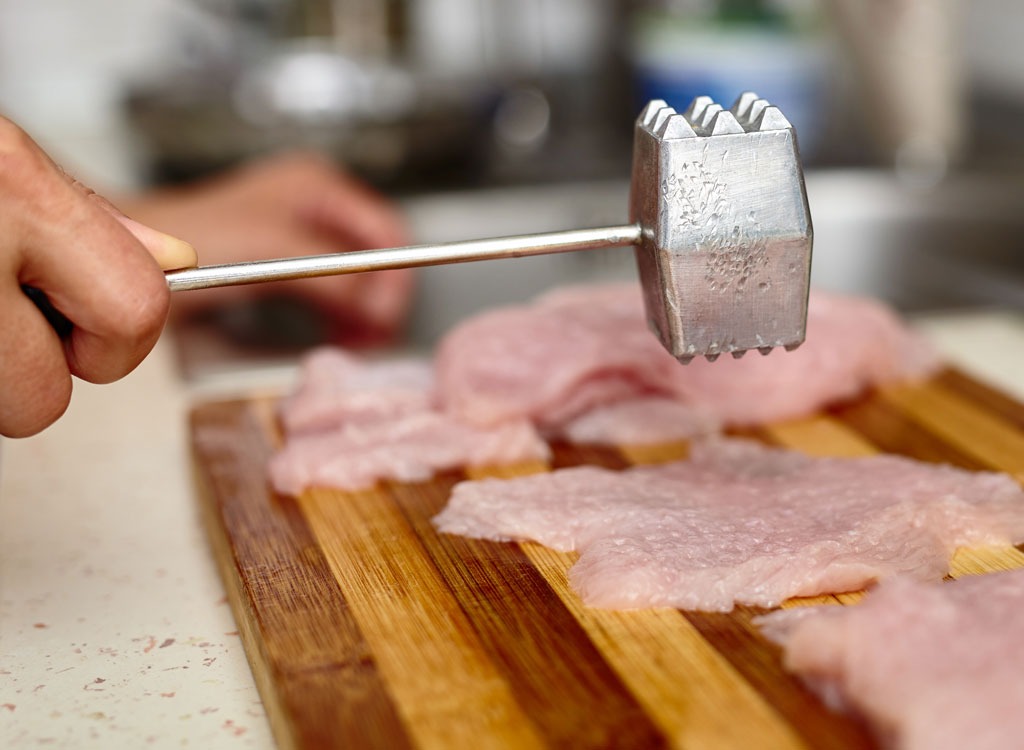
So you have a meat tenderizer—but how often do you use it? If you’re not incorporating the tool into your cooking, you could be missing out on a more flavorful dinner. Try tenderizing chicken breasts or steak next time you cook them—you might be surprised at the results.
Mistake: Not using a meat thermometer.
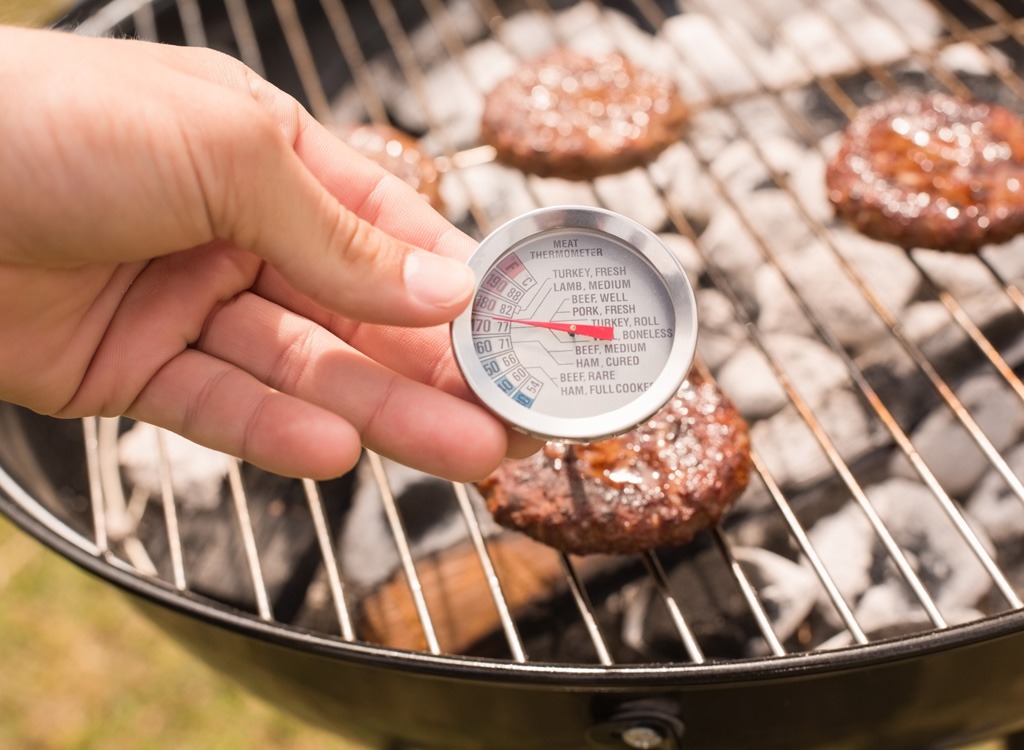
Cutting open a chicken breast or a steak filet to see what color it is on the inside isn’t a scientifically sound way of testing its doneness. Instead, use a meat thermometer to make sure your food has reached a safe internal temperature.
Mistake: Not using separate cutting boards for different foods.
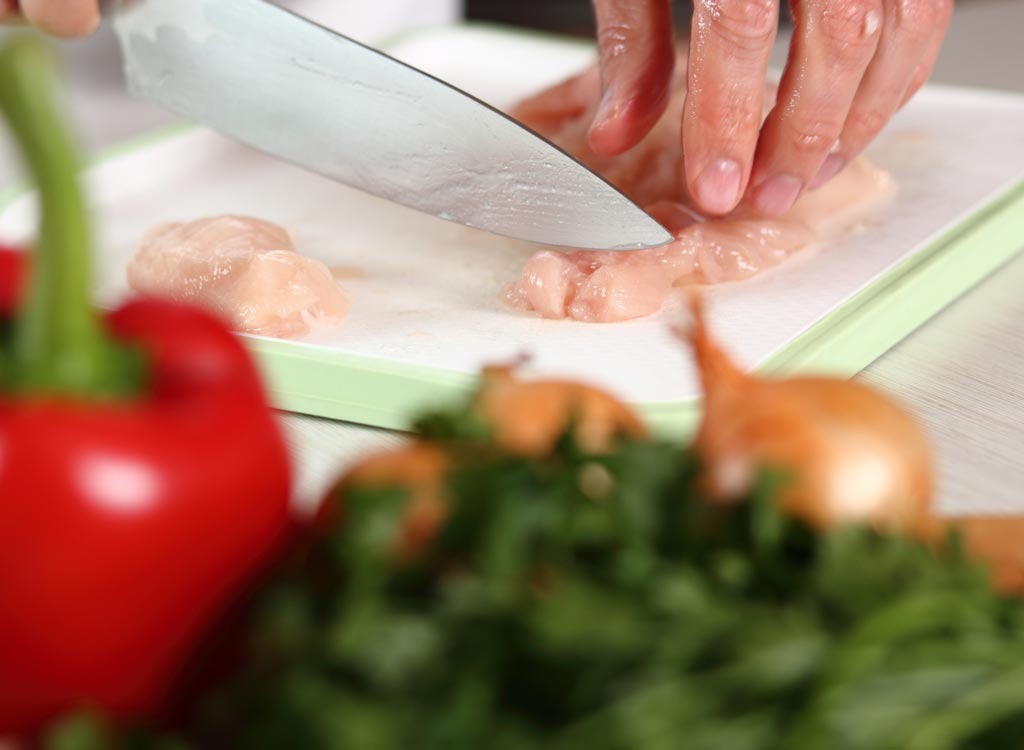
Cross-contamination is a real thing, so practice the appropriate safety measures when cutting raw meat. Don’t use the same cutting board and knife again for vegetables, and be sure to thoroughly wash knives and cutting boards after use.
Mistake: Rinsing chicken.
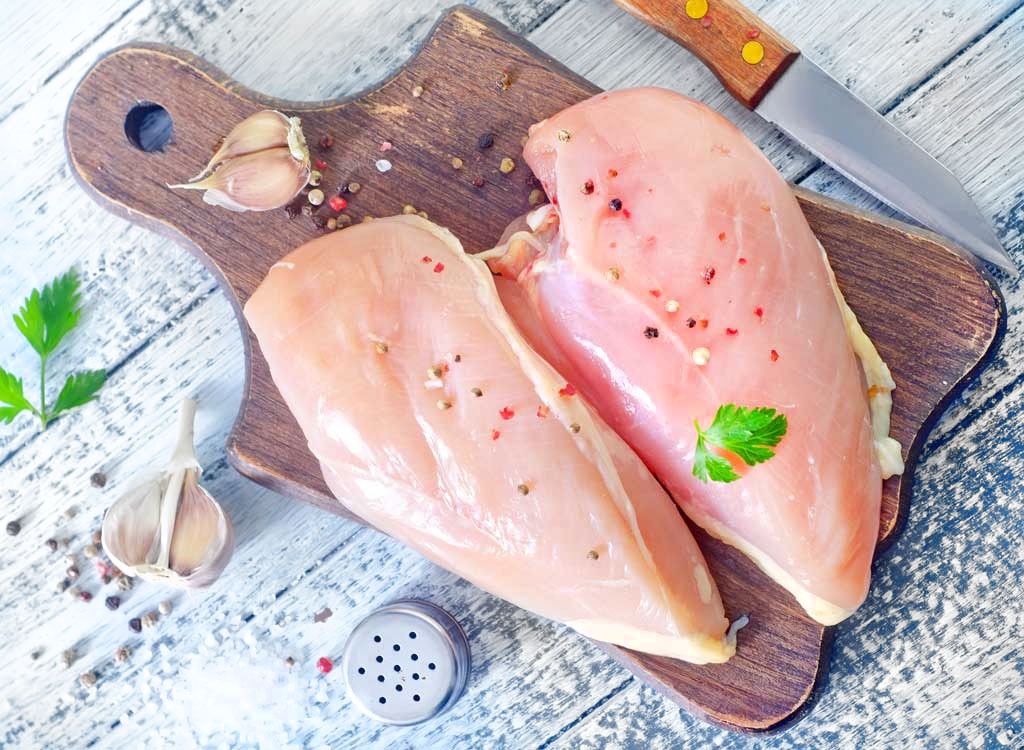
Maybe you were raised thinking that rinsing chicken off will get bacteria off of it before you cook it. In reality, though, all you’re doing is spreading germs around your chicken. We hate to admit it, but Julia Child was wrong about this one.
Mistake: Skipping a splatter screen when cooking with oil or grease.
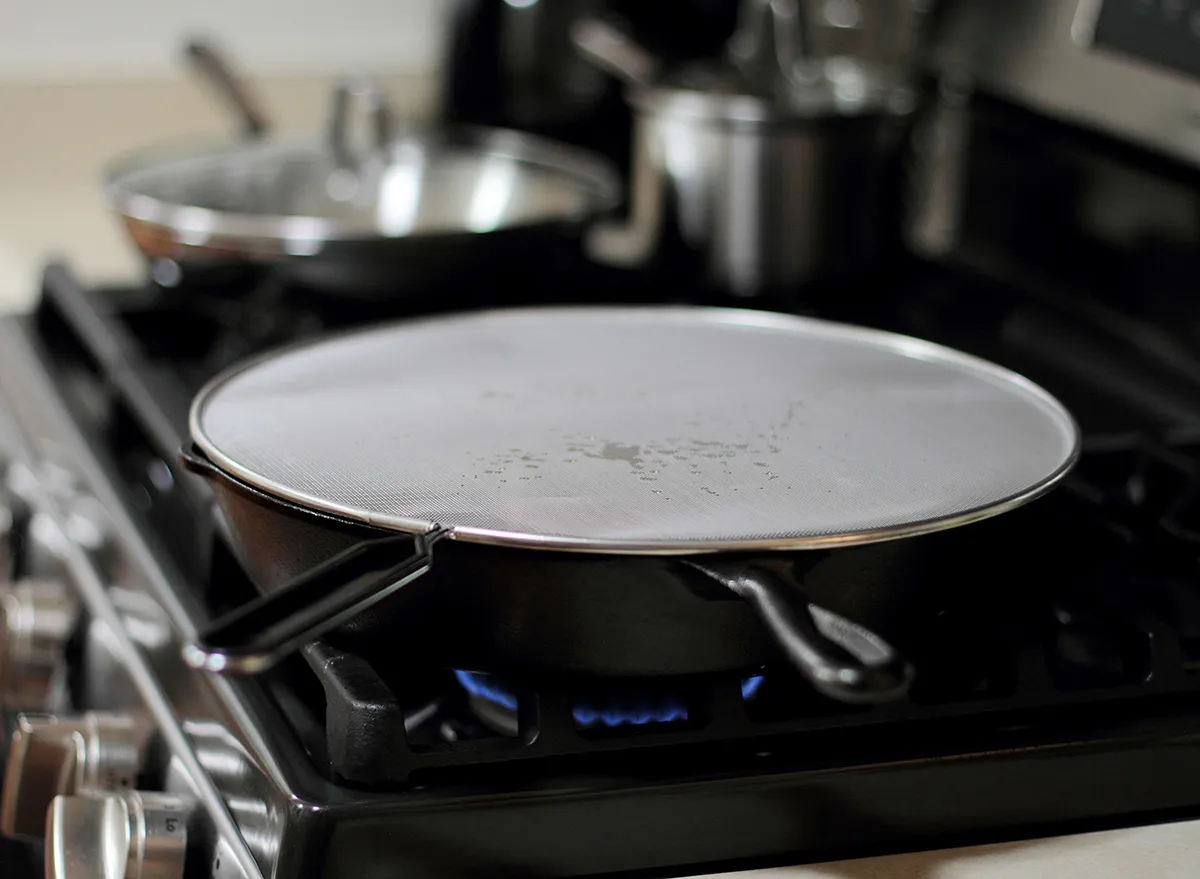
A splatter screen might seem like an unnecessary kitchen gadget, but you need one. If you’re cooking vegetables in a lot of oil or greasy meat like bacon, you’ll want this tool to protect your kitchen from grease splatters. You’ll save yourself from getting burned, too.
Mistake: Flipping grilled meat before it’s ready.
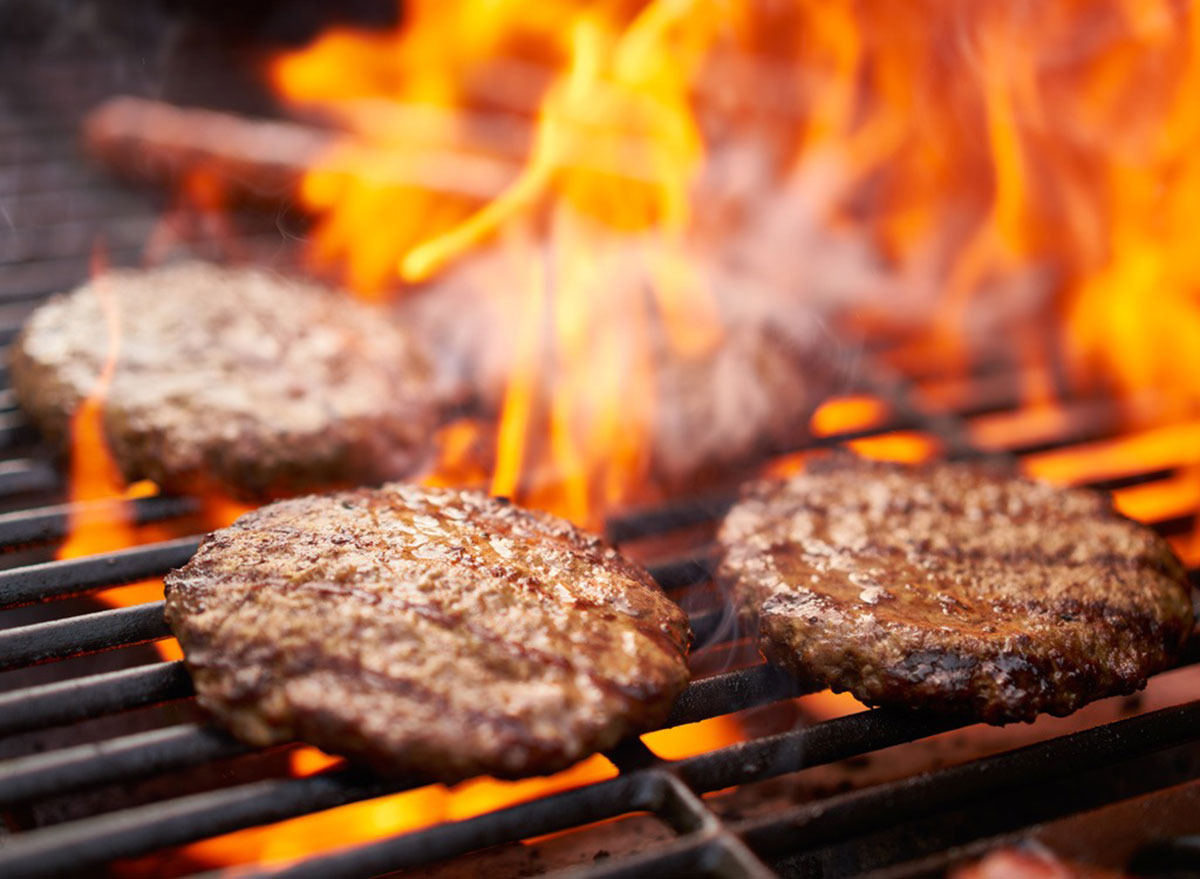
If you’re trying to avoid burnt meat, you might be tempted to flip it soon after it hits the grill. But you might mess up your food if you flip it too early. If your meat is sticking to the grill, it’s not ready to be flipped yet—it should come off easily when the time to flip comes.
Mistake: Cooking bacon on the stovetop.
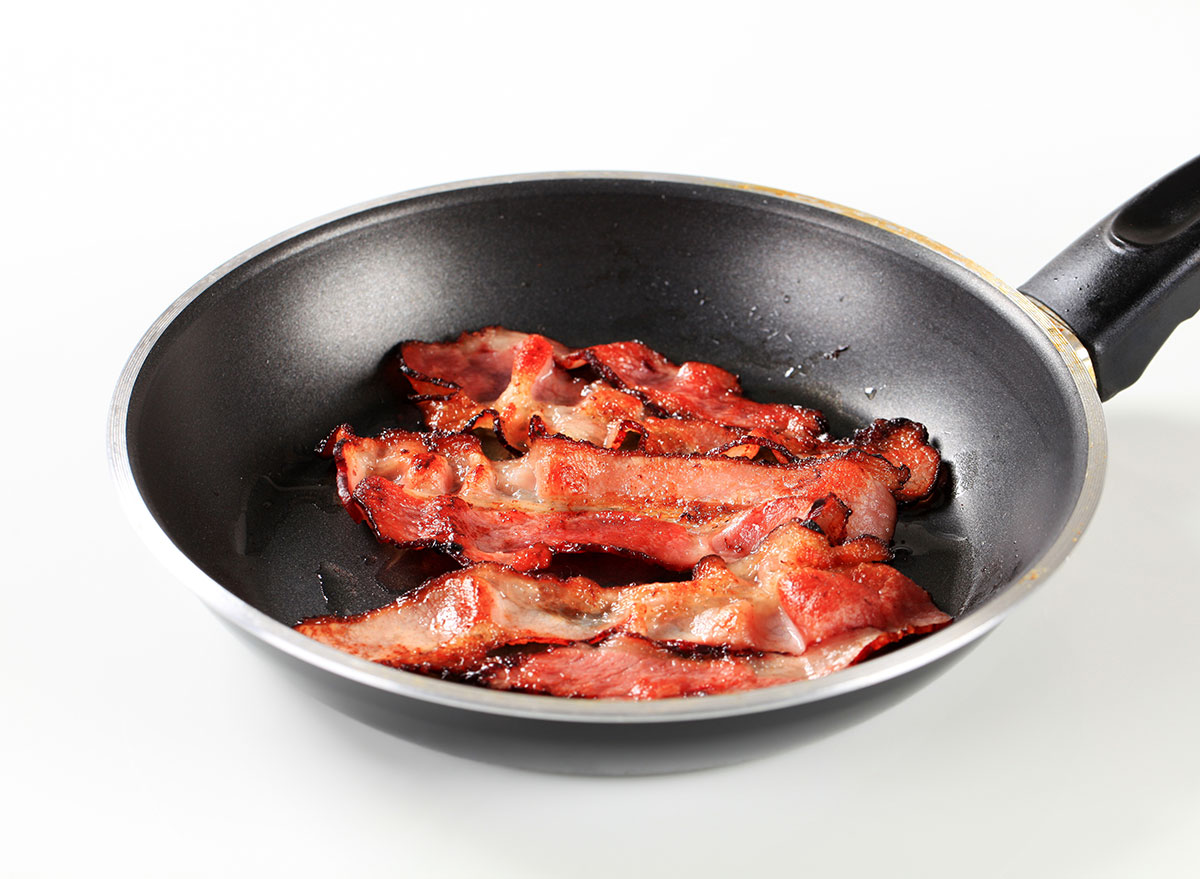
If you haven’t tried bacon in the oven yet, it’s not too late to start. You’ll avoid the hot grease splatters, and the meat will cook more evenly. And if you’re still not convinced, we compared three bacon-cooking methods, and the oven-baked bacon was the best.
Mistake: Not shredding your own cheese.
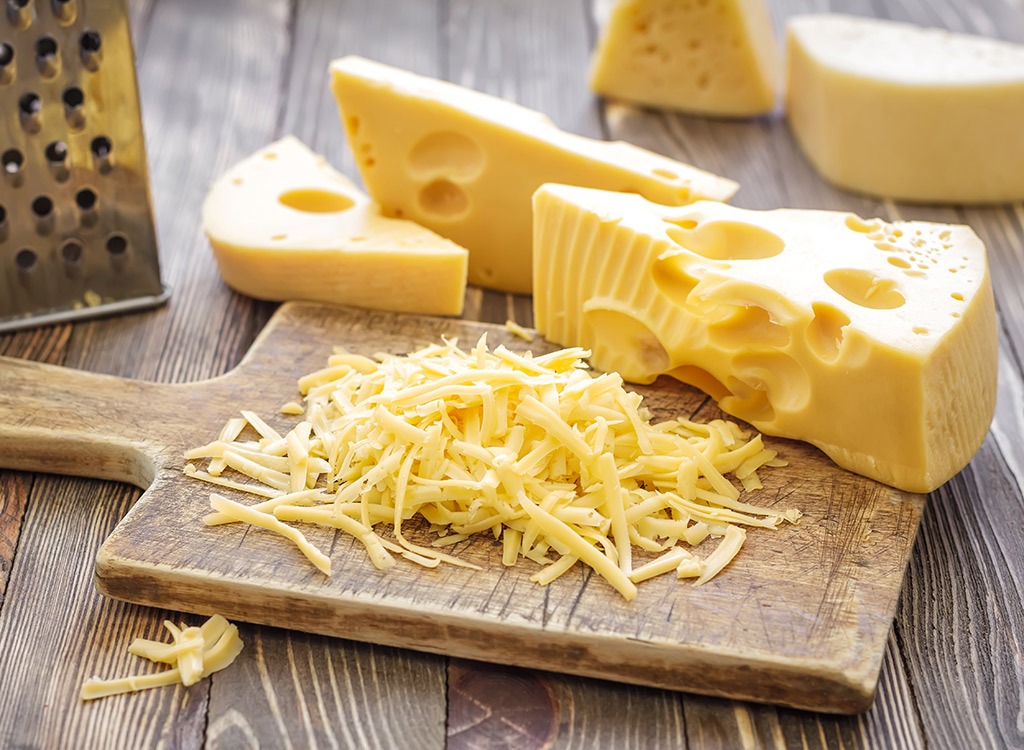
Yes, the bags of shredded cheese at your local grocery store are convenient. But if a recipe calls for shredded cheese, it will come out a lot better if you take the time to shred some fresh cheese on your own. It could take your dinner from so-so to wow-worthy.
Mistake: Overlooking fresh herbs.
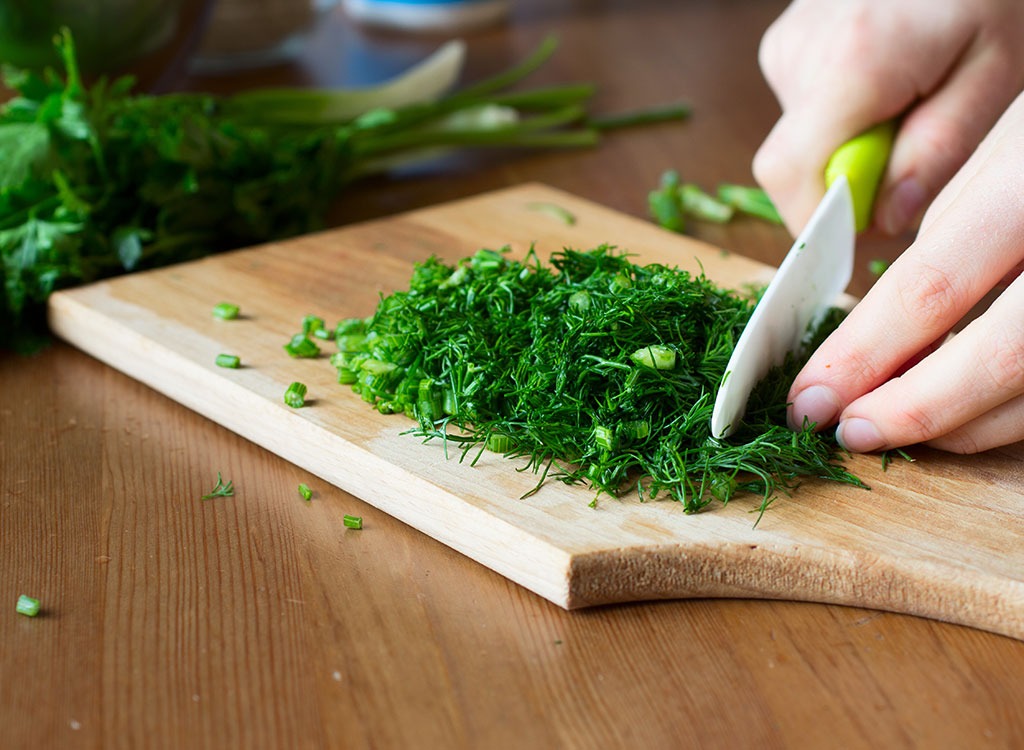
Yes, spices are a delicious way to add flavor to your food. But if you aren’t experimenting with fresh parsley or basil, you’re missing out. Try picking up a few sprigs of fresh herbs the next time you’re at the grocery store to make your meat and vegetable dishes even more delicious.
Mistake: Leaving a pot unattended.
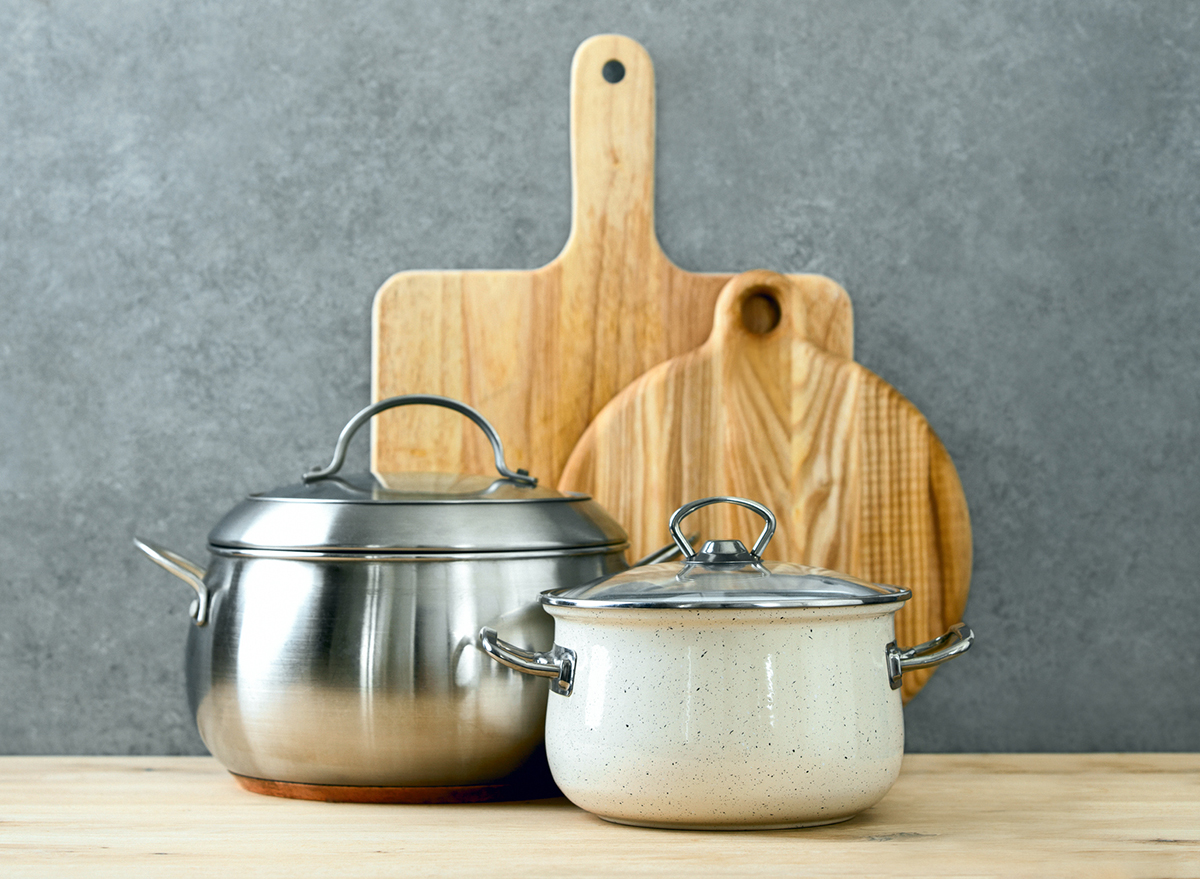
It might seem like you have time to go to the bathroom or turn on the TV, but that pot of water could quickly boil over if you leave it unattended. When you’re cooking, it’s best to stick with your dishes the whole time they’re on the stove—it’s not worth the risk.
Mistake: Using metal tools with nonstick pans.
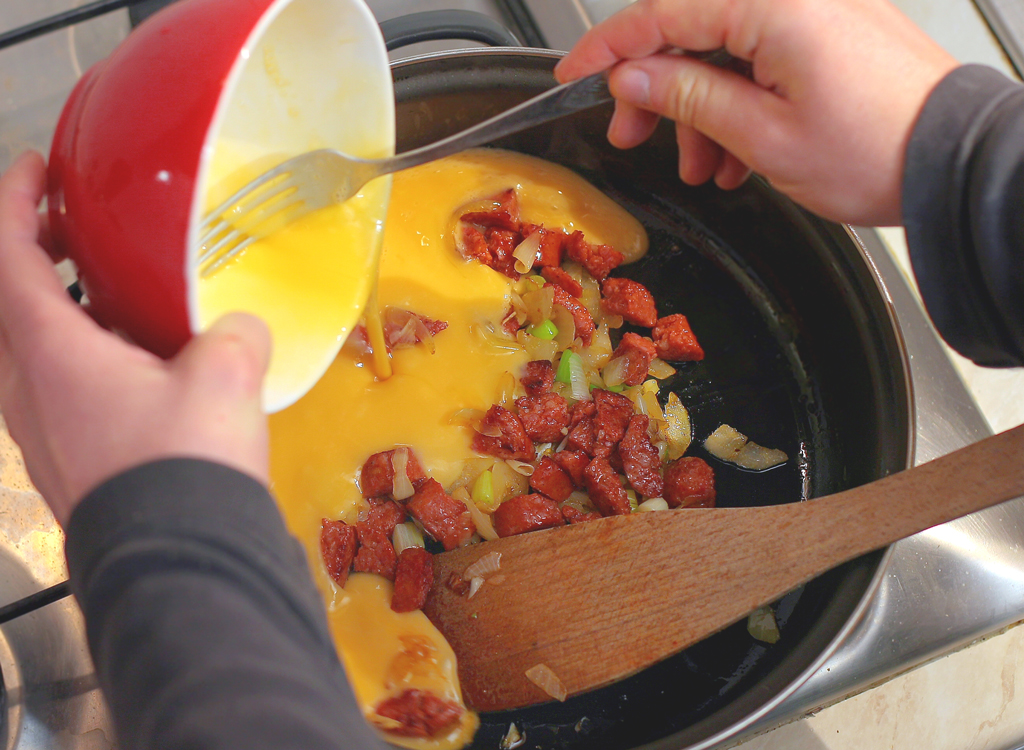
The warnings on the packaging are there for a reason. Metal tools can scratch nonstick pans and cause them to wear out sooner than they should. Use plastic or wooden tools to preserve your nonstick pans’ integrity.
Mistake: Not whisking scrambled eggs.
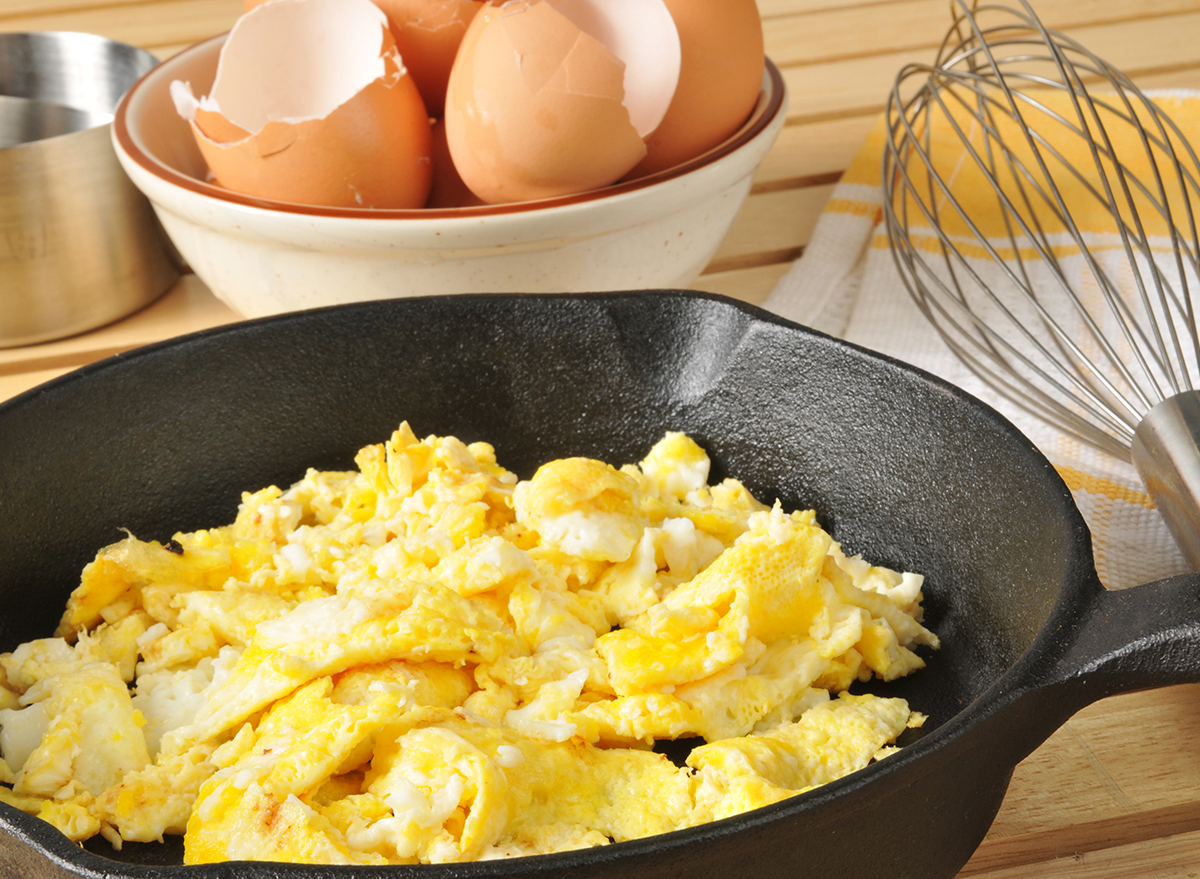
There’s a reason this tip made our roundup of scrambled egg mistakes! Taking the time to whisk them before adding them to the pan will make your eggs extra fluffy.
Mistake: Not cracking eggs into a separate bowl.
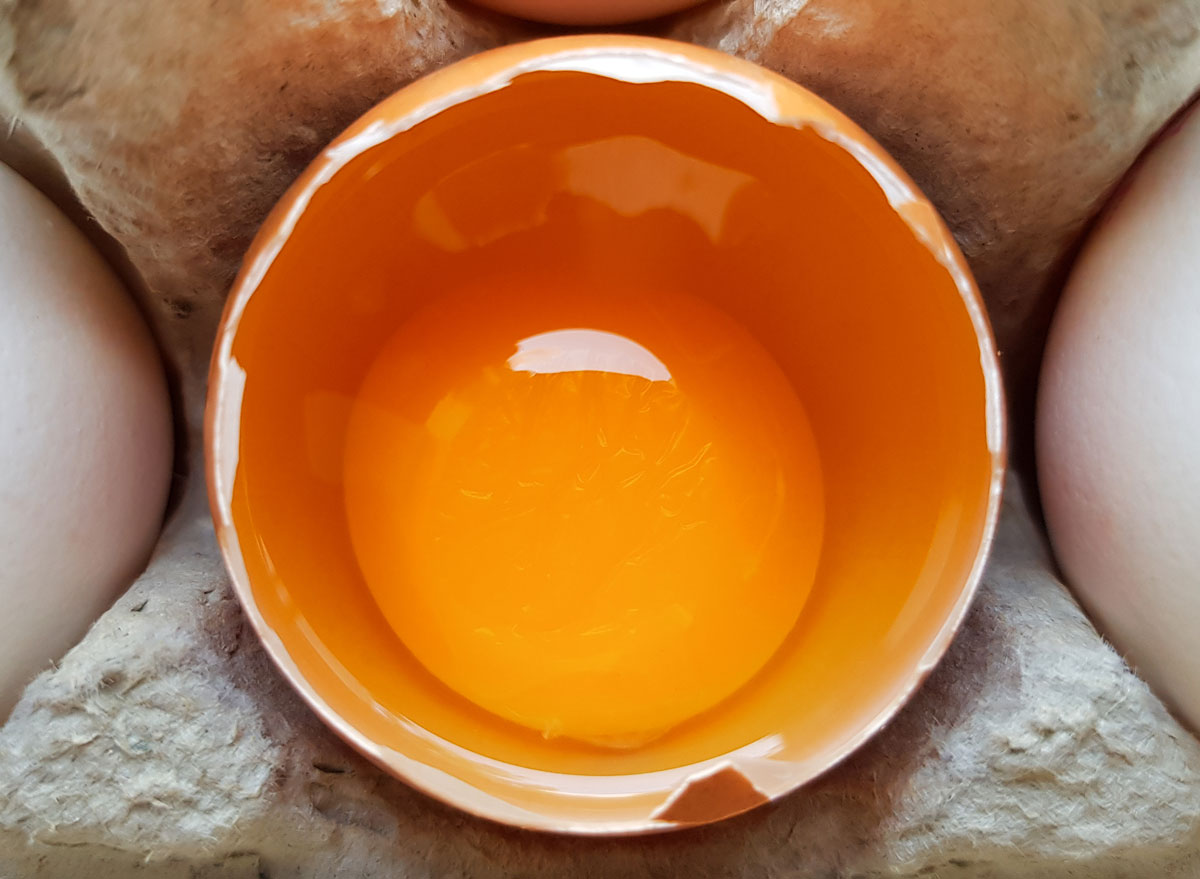
If you crack your eggs on the side of the pan or mixing bowl, you risk bits of eggshell getting into the food. Cracking them separately will eliminate this—it’s worth the extra cleanup.
Mistake: Tossing fresh herbs instead of freezing them.
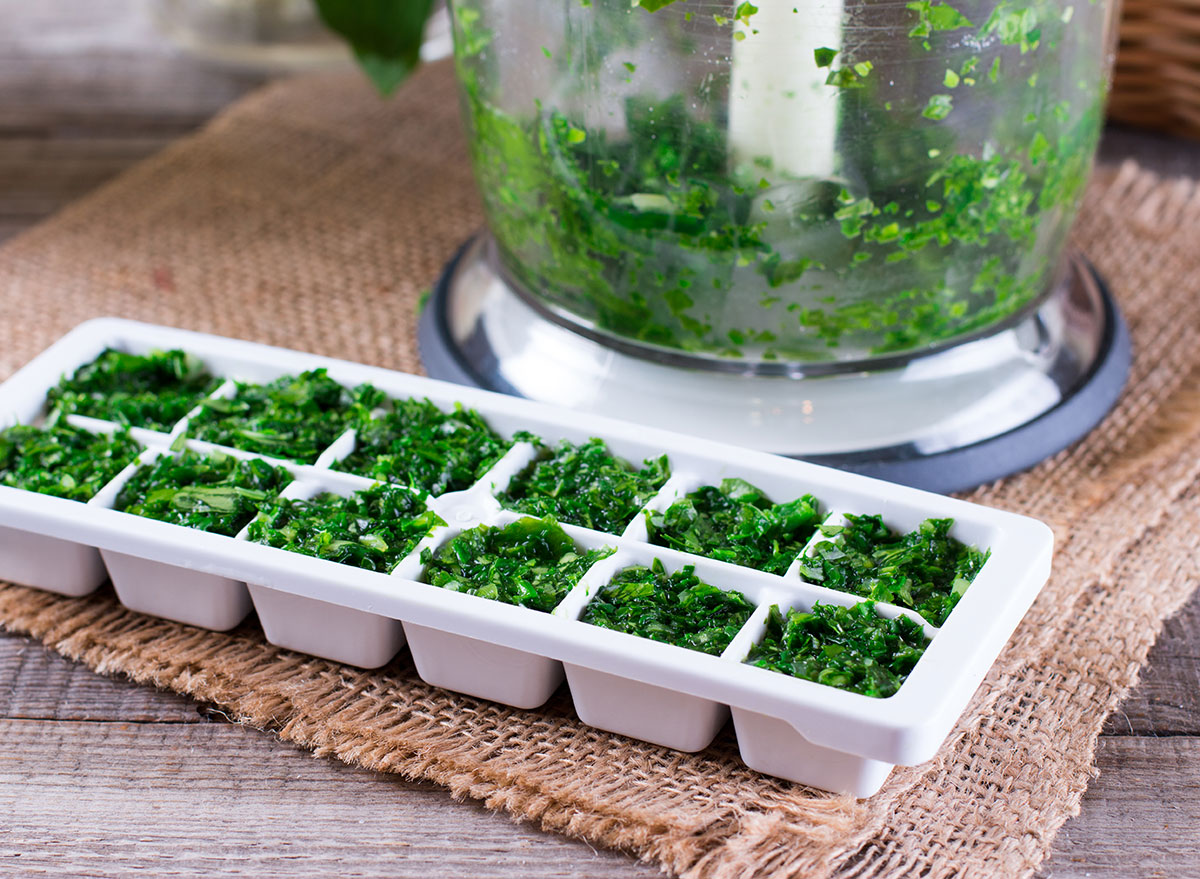
So you bought a container of cilantro, but you only used a third of it in a recipe. That doesn’t mean you have to get rid of the rest! You can freeze leftover herbs to use at a later time—just put shredded herbs in an ice cube tray and add water.
Mistake: Not meal prepping.
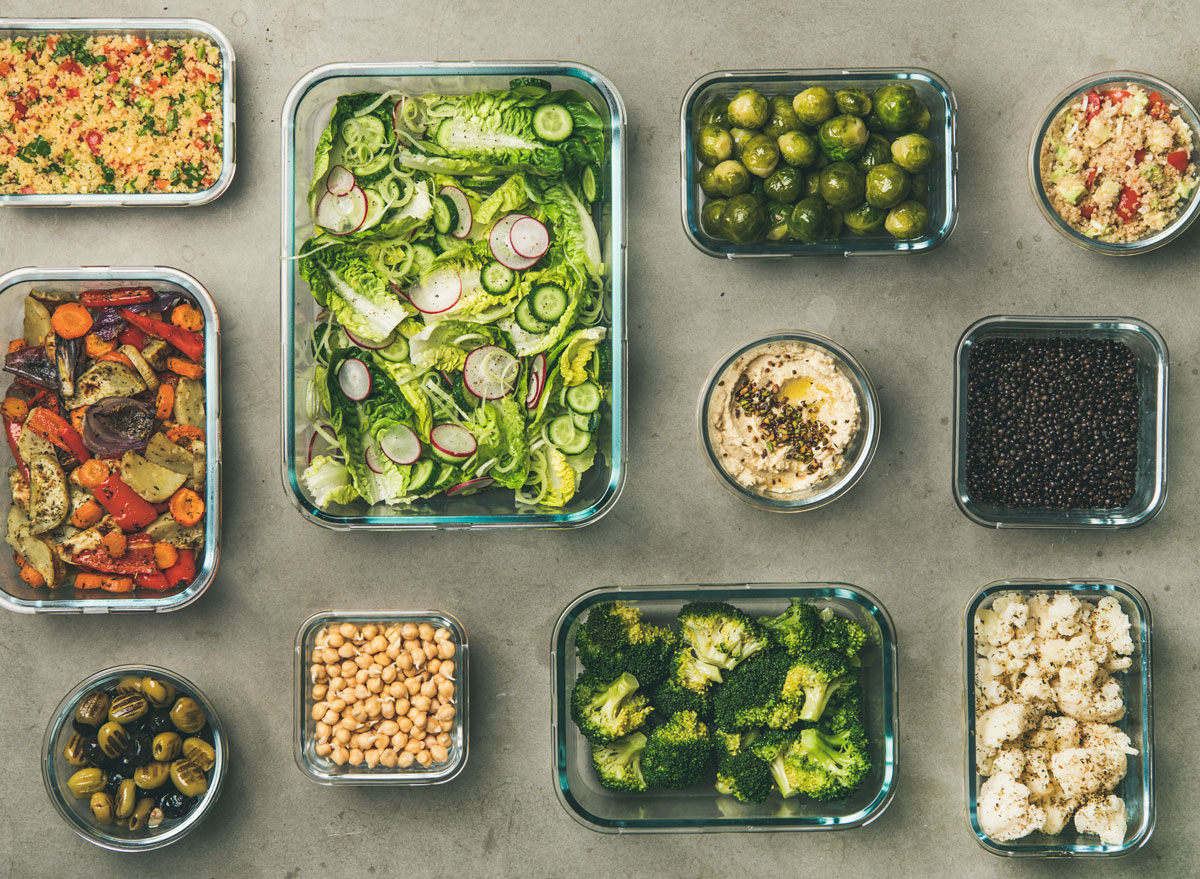
If you start the week strong but fall off the cooking wagon halfway through, you’re not alone. That’s why meal prep is a game-changer—you only have to cook once for a week’s worth of lunches. Plus, you won’t end up with a half-empty bag of lettuce going to waste in the back of your fridge, because you’ll only buy what you know you need for the week.
Mistake: Not adding salt to your coffee.
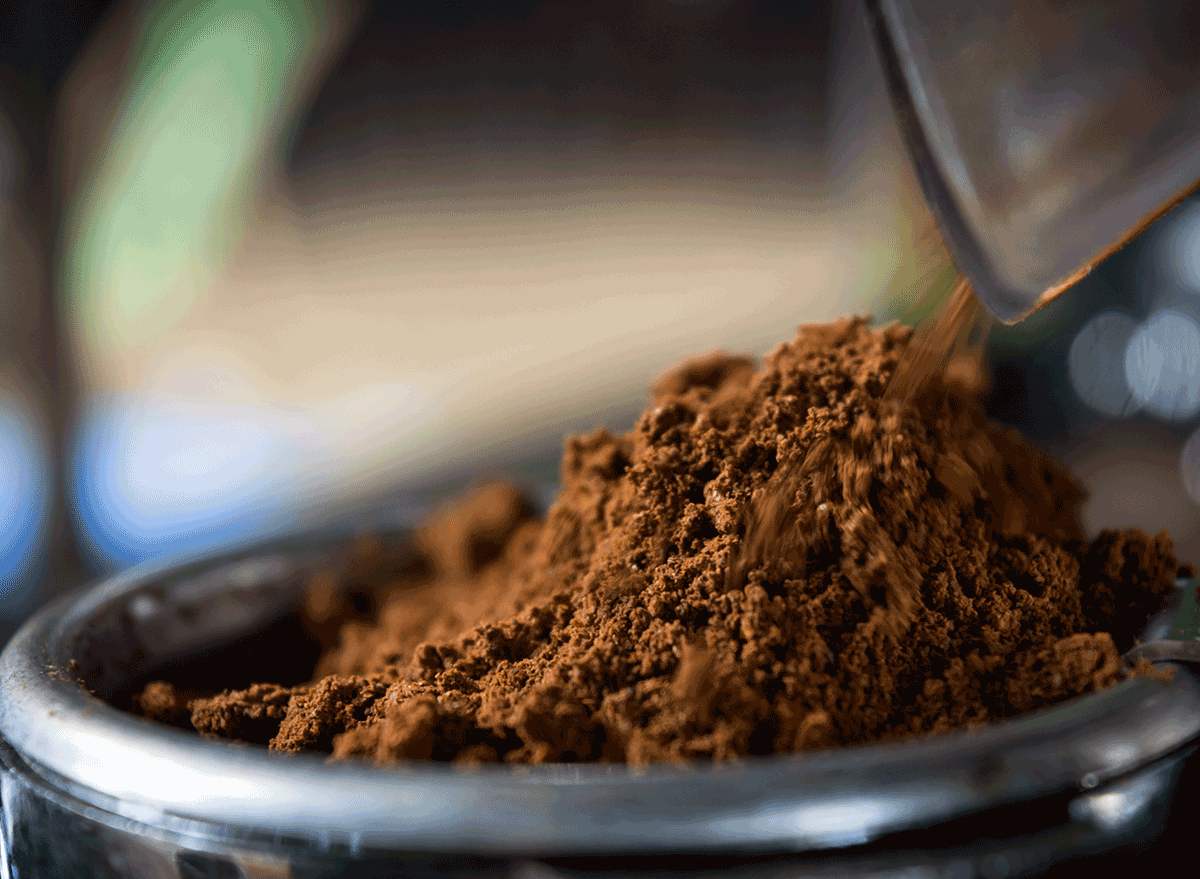
Hear us out! This trick from Alton Brown won’t make your morning java taste salty. A pinch of salt added to the coffee grounds will cut through the bitterness of fresh-brewed coffee, leaving you with a perfect roast.
Mistake: Overlooking the power of mayo.
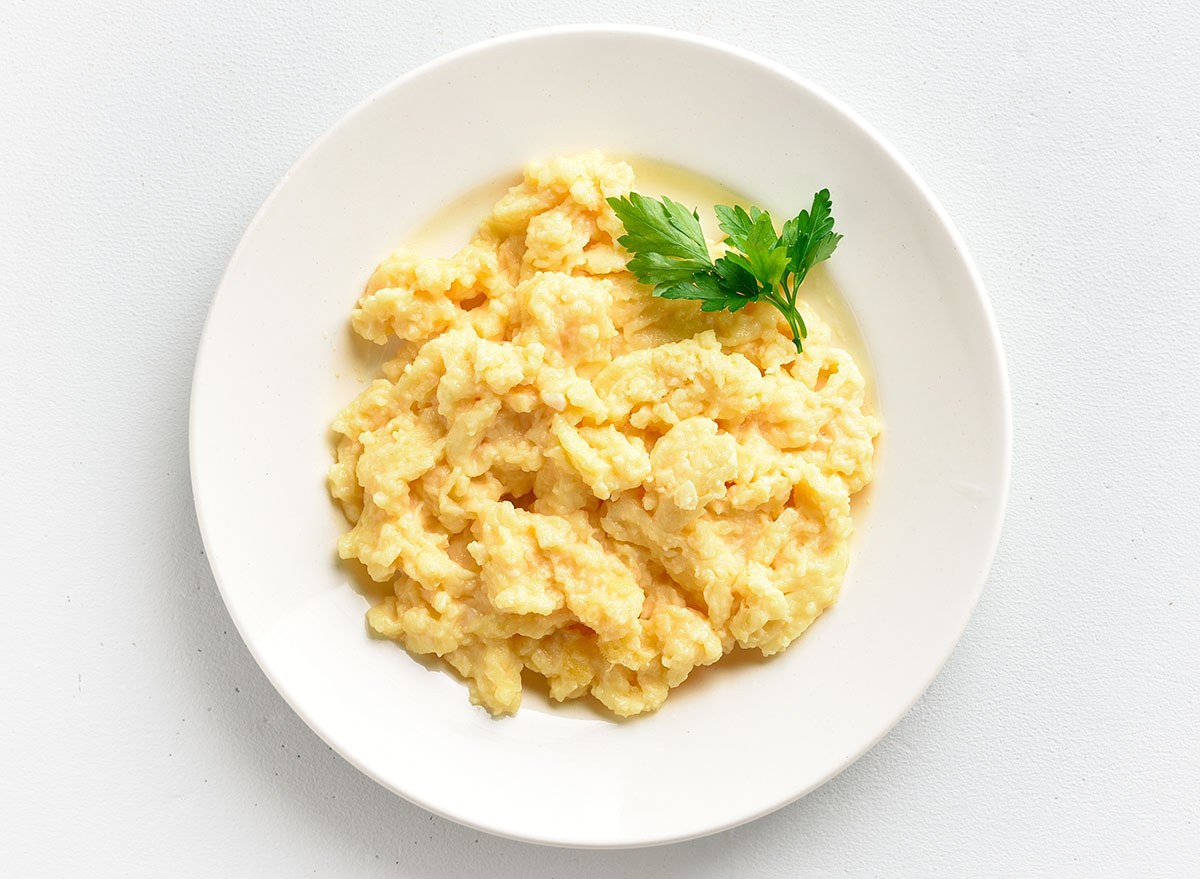
Sure, mayo is great on sandwiches or French fries. But it can also be a secret weapon in your cooking arsenal. Add mayo to your grilled cheese for a richer sandwich, or add it to scrambled eggs for a creamy bite.
Mistake: Not using paper towels when cooking bacon.
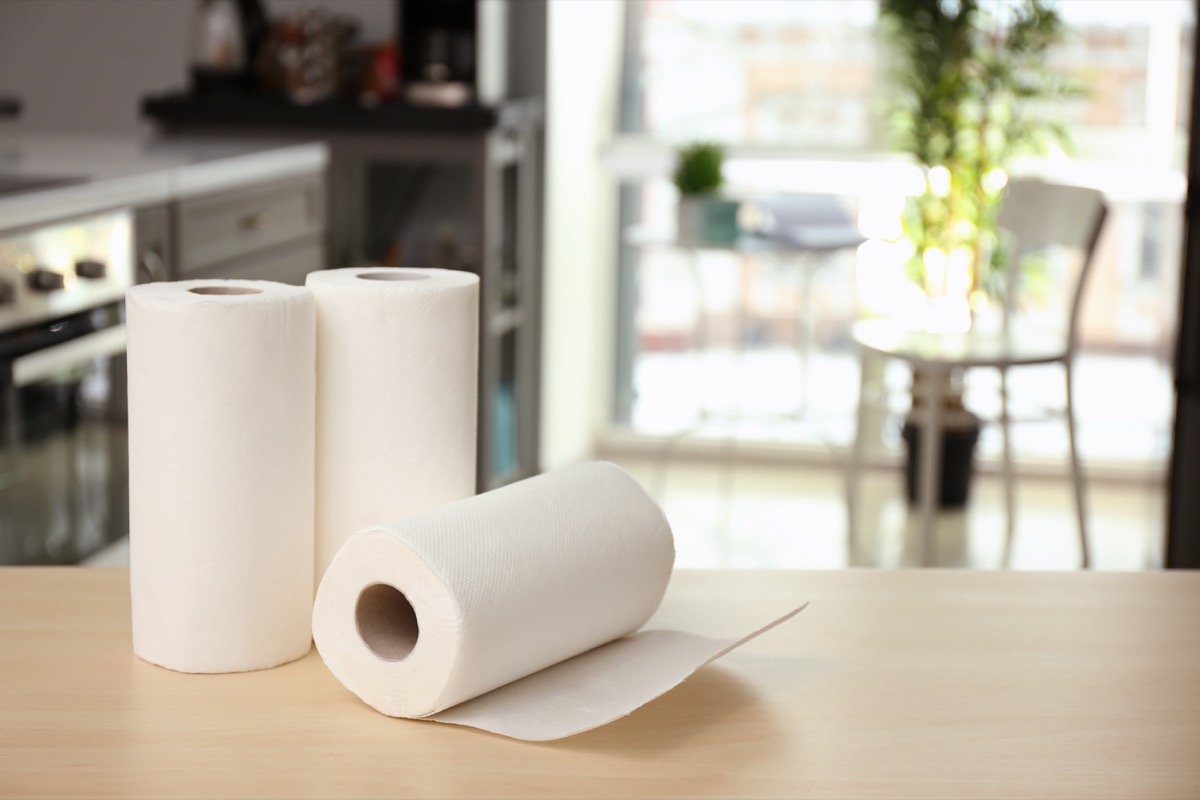
Another trick from Alton Brown, this will save you some serious cleanup time. Line your baking sheet with paper towels to catch the bacon grease while the strips are in the oven—it works.
Mistake: Grinding an entire bag of coffee at the store.
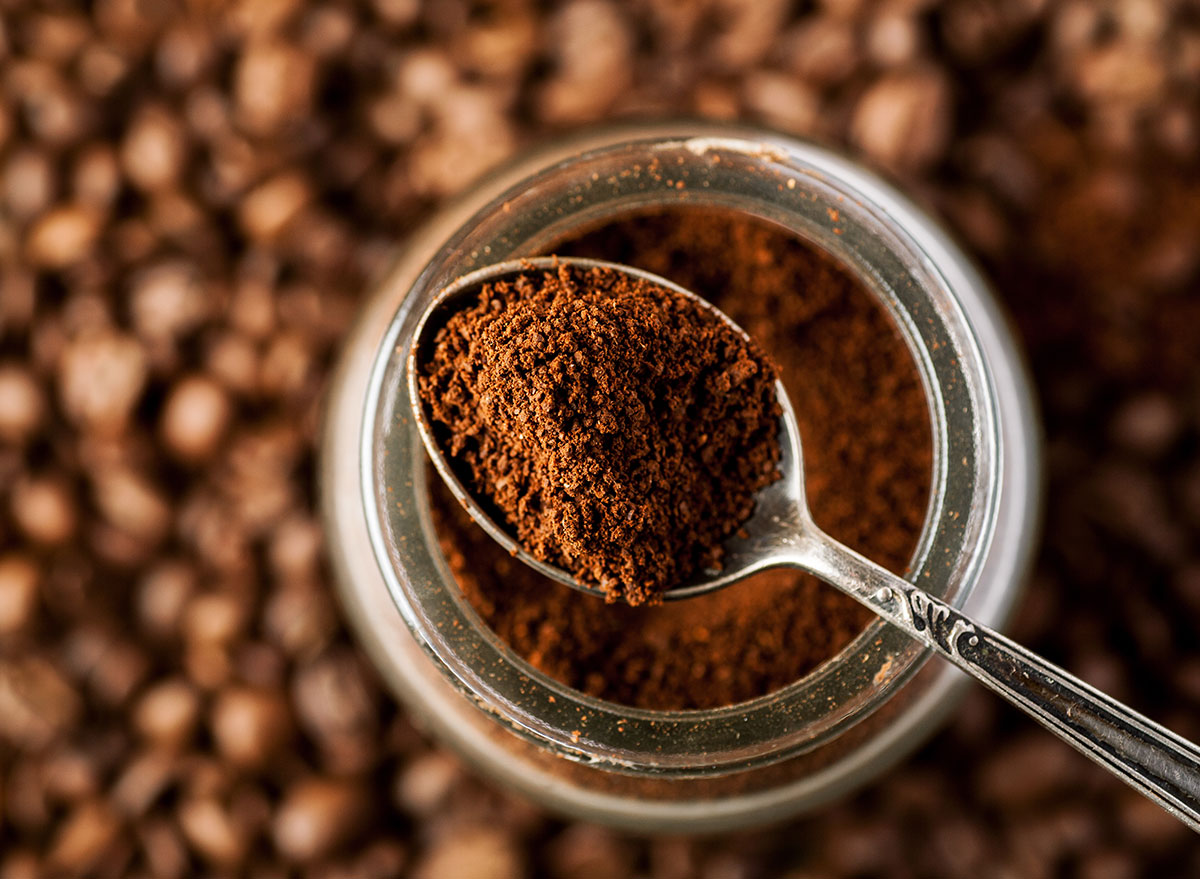
If you’re using the in-store grinder on your coffee, you’re not getting the best brew that you could be having. Investing in a coffee grinder is worth the money—the beans start to oxidize after they’re ground, so if you’re keeping the bag on your counter for more than a few days, you won’t be getting the freshest possible cup.
Mistake: Only using your muffin tin for baking.
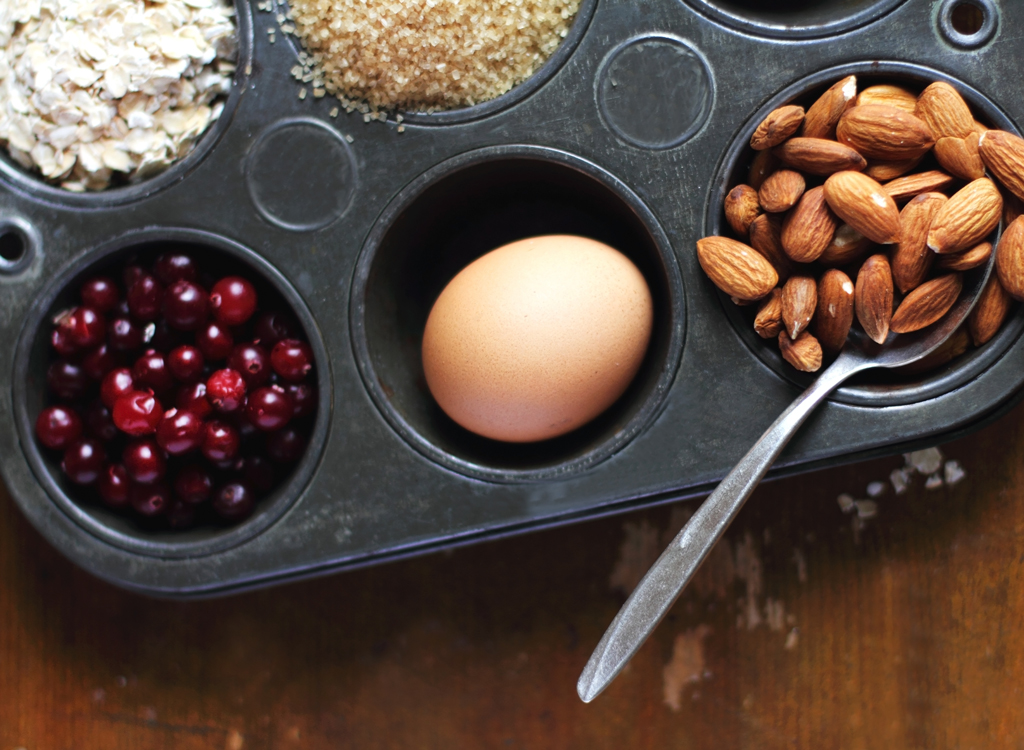
The kitchen standby can do way more than making muffins! Use a muffin tin to freeze soups, make cookie cups, and more. Here are 30 Things You Can Make with a Muffin Tin.
Mistake: Not preheating your oven.
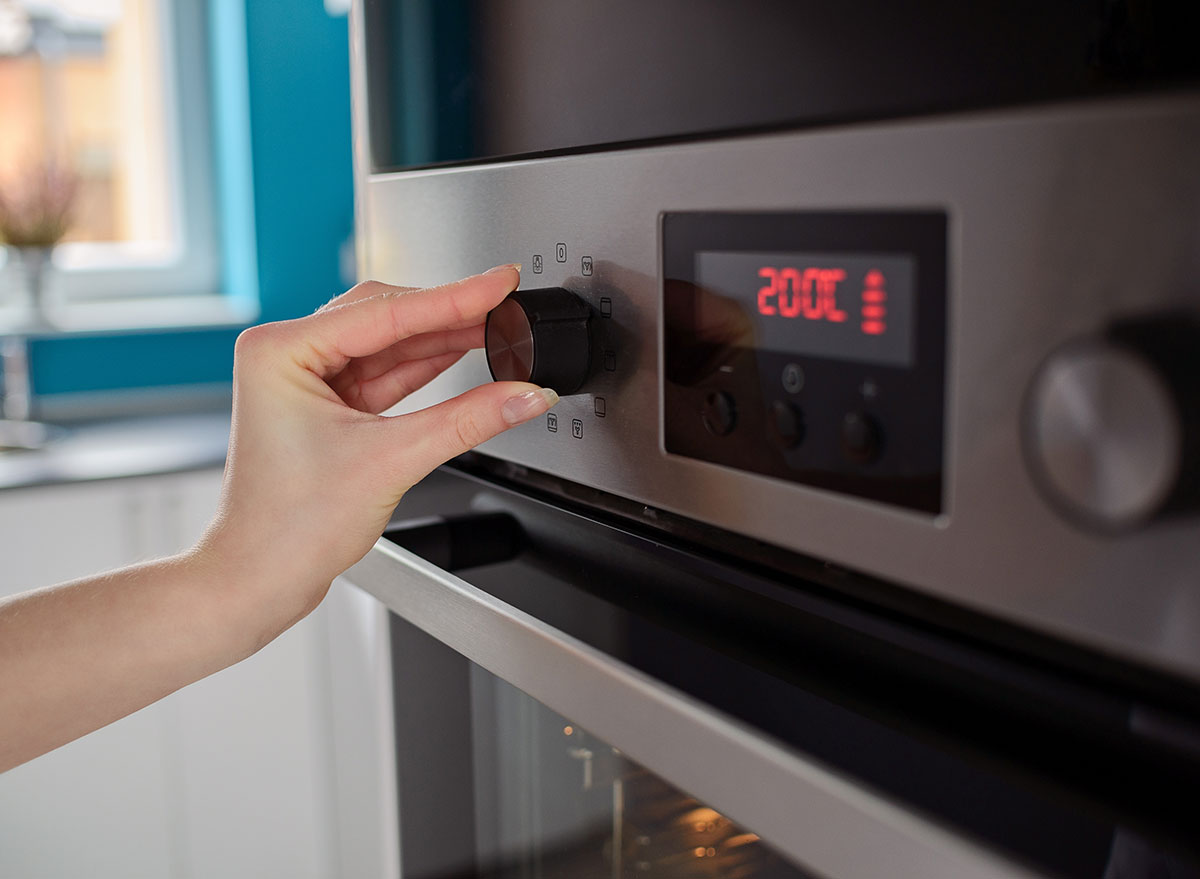
We talked about preheating your pan, but preheating the actual oven is just as important. Yes, it’s tempting to just throw those cookies in before the oven reaches the desired temperature. But if you want them to come out evenly cooked, it’s best to let the oven heat fully before putting your food in.
Mistake: Opening your oven too often to check on your food.
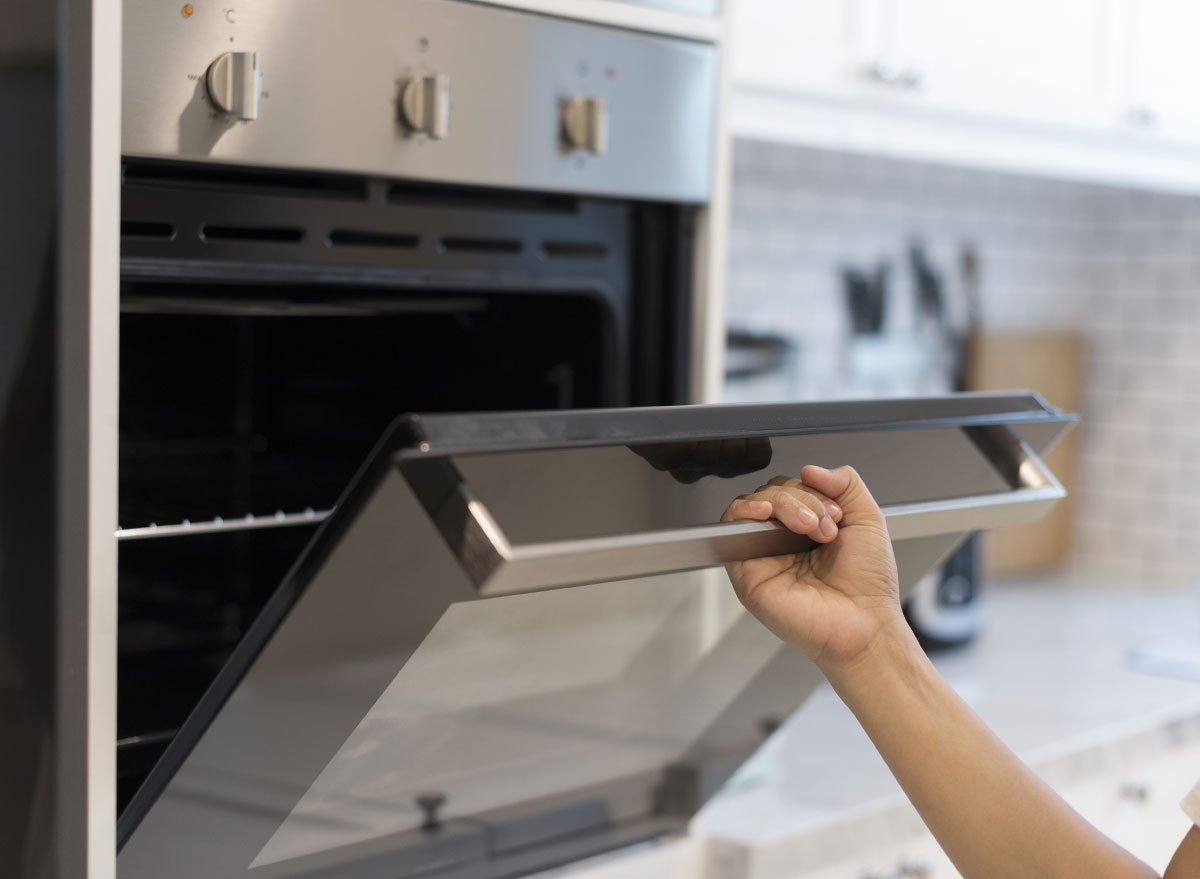
If you don’t have an oven light, it can be tempting to keep opening your oven to see how the baking’s going. But every time you open the oven, you’re letting cool air into the cooking space, which will only make the baking process take even longer.
Mistake: Not investing in a pizza stone.
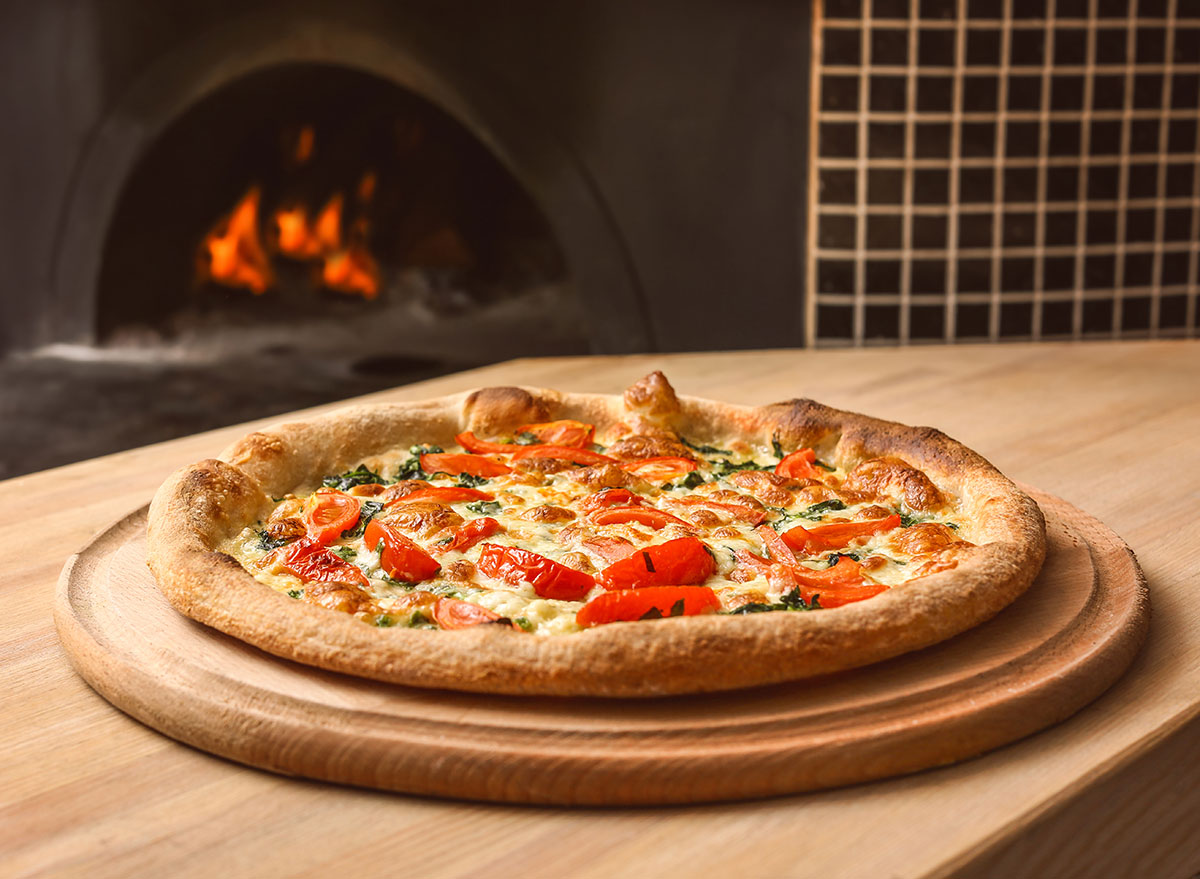
If you enjoy a lot of pizza at home, a pizza stone is key for maximum flavor. Whether you’re baking the dough from scratch or just heating a frozen pizza, the pizza stone will add that authentic, oven-fired taste.
Mistake: Using bottled ketchup.

If you’re squirting out shelf-stable ketchup onto your fries and sandwiches, you’re missing out. Homemade ketchup is fairly simple to make—and once you’ve tasted the difference, you’ll never go back.
Mistake: Not cooking your steak with butter.
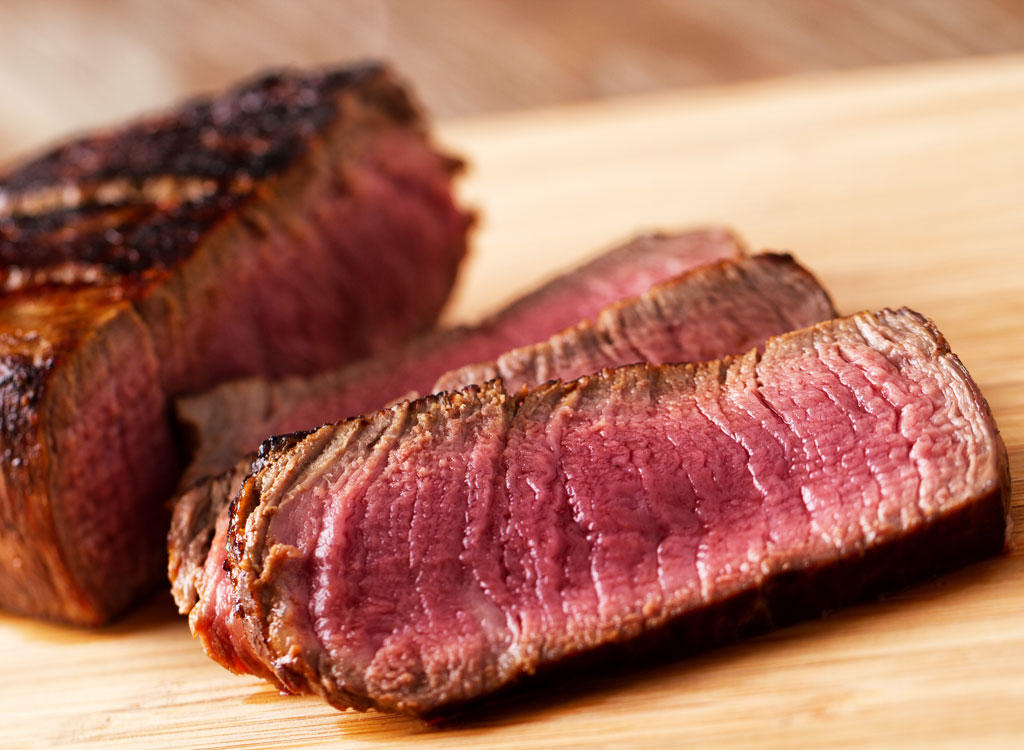
When you’re cooking steak at home, a little bit of butter and herbs can go a long way, especially with cuts like filet mignon. It will keep your steak nice and juicy and impart even more flavor into the meal.
Mistake: Cooking rice without a lid.
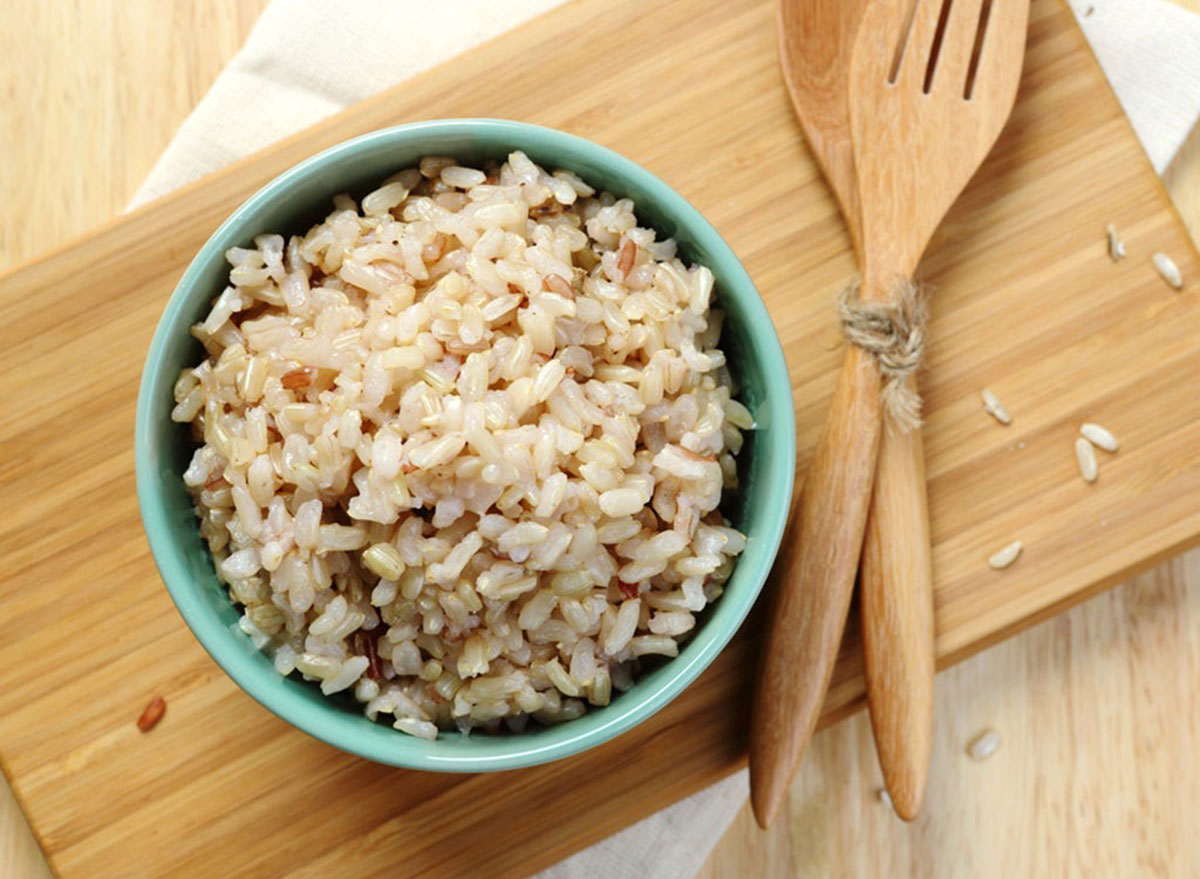
Using a lid when cooking rice on the stovetop is essential for keeping the moisture in. And don’t lift the lid while the rice is cooking, either—just let it do its thing.
Mistake: Not storing herbs properly.
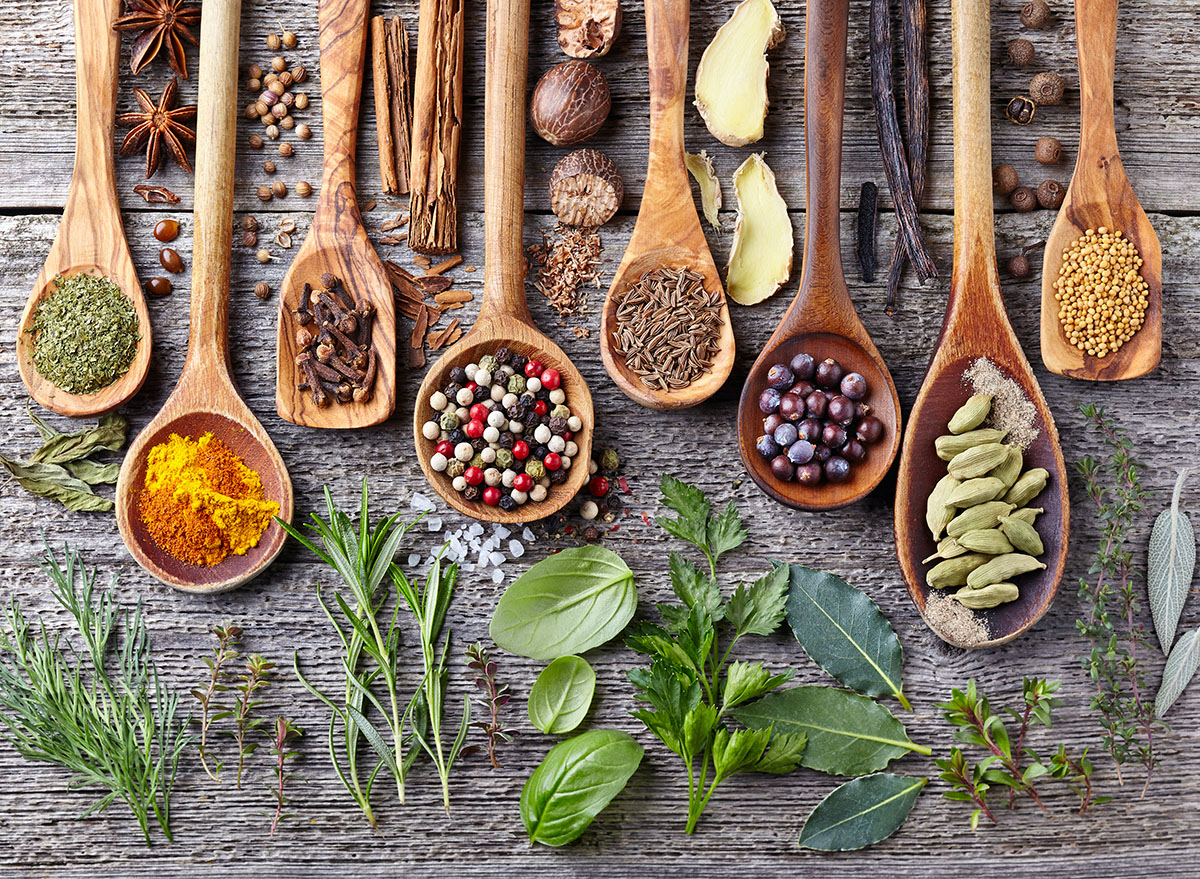
If you aren’t keeping your herbs in water, you should start. Trim the ends and put them in water to keep your herbs fresh until you’re ready to use them.
Mistake: Not storing onions correctly.
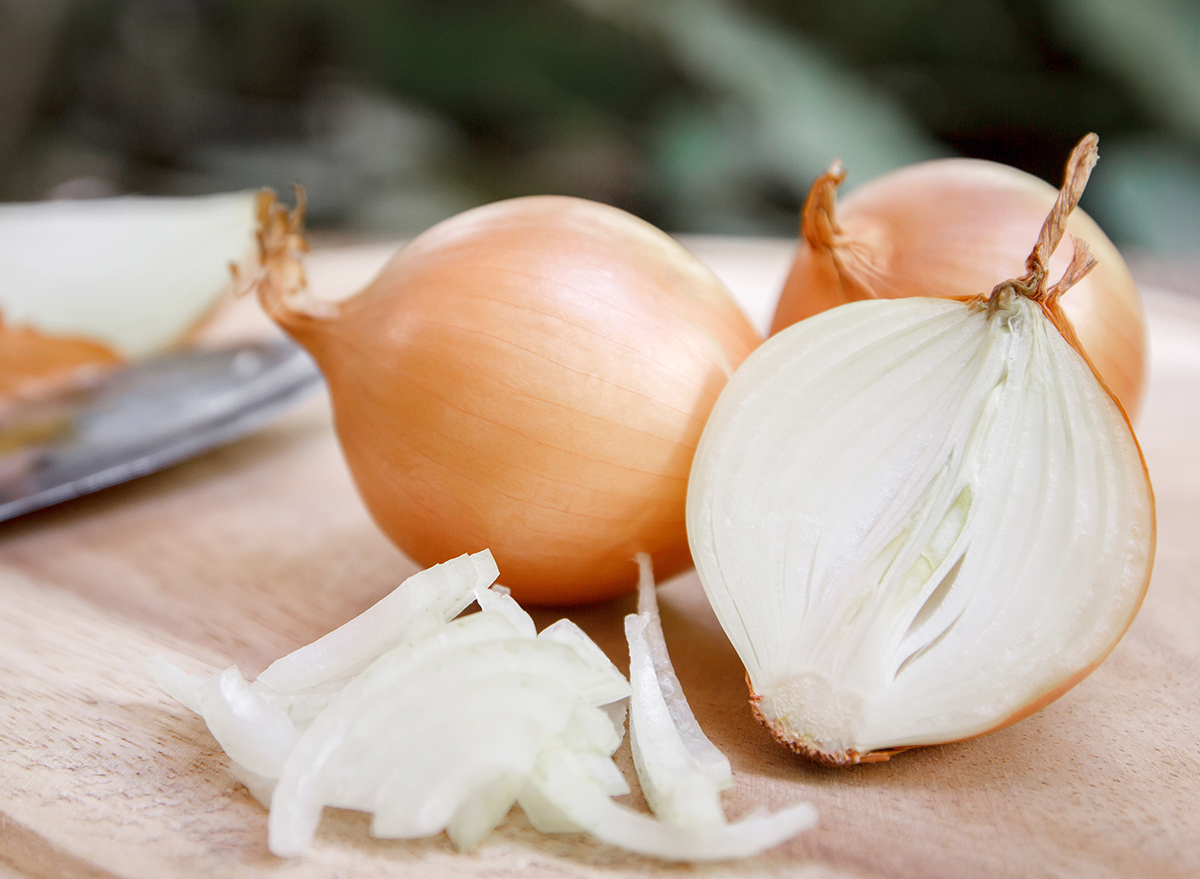
Another food that’s commonly stored improperly is onions. When they’re uncut, you should store onions in a cool location that’s away from direct sunlight. After they’re sliced or cooked, onions should be stored in the refrigerator to stay fresh.
Mistake: Using olive oil for high-heat cooking.

Olive oil has a low smoke point, which makes it great for low-heat cooking or as a finishing oil. For higher-heat cooking, try avocado oil or canola oil.
Mistake: Flipping pancakes too early.
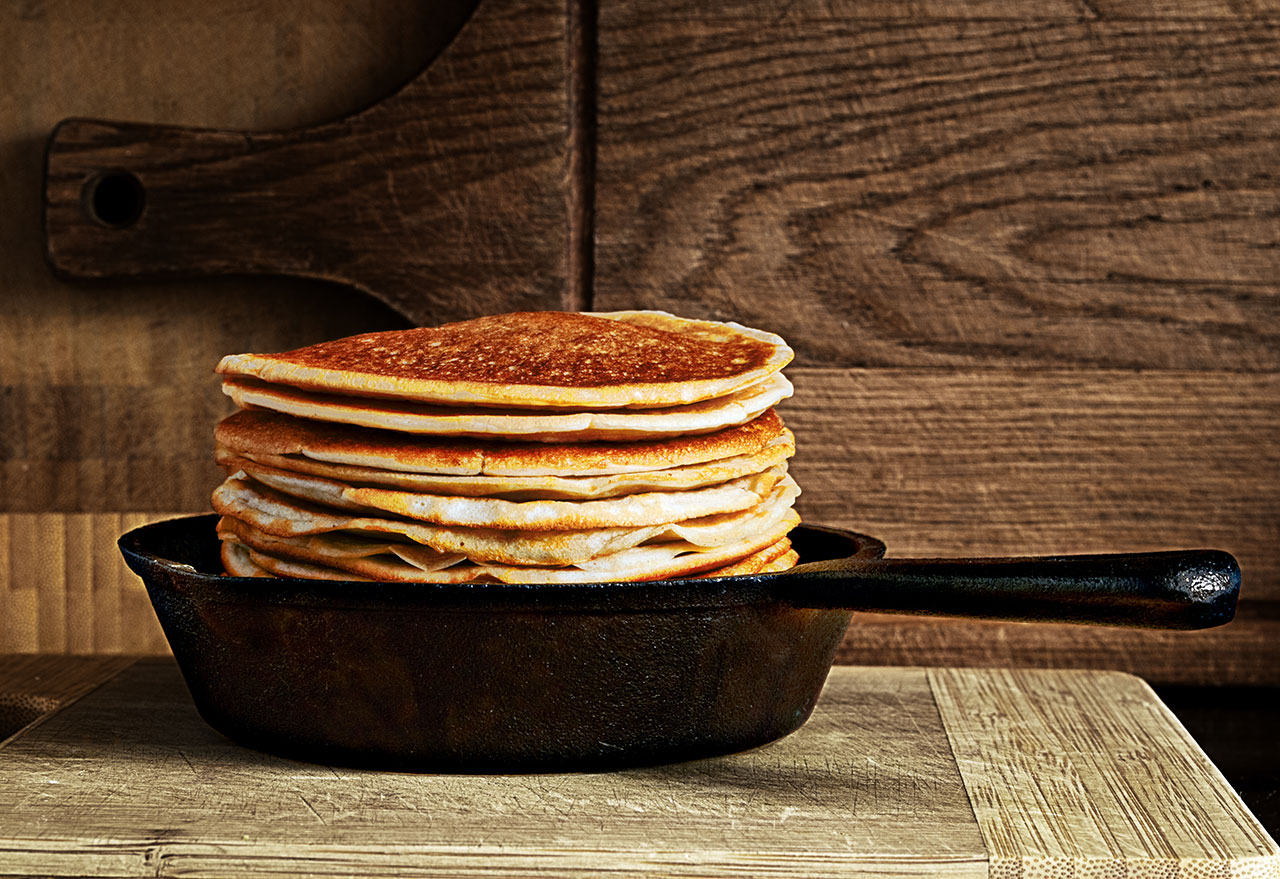
The key to flipping pancakes is to wait until the whole pancake is bubbling to flip them over. If you only see a few bubbles on the sides of the pancakes, they aren’t ready yet, and you’ll be left with a mess.
Armed with all of these tricks, you’ll never make these cooking mistakes again.
For more, check out these 108 most popular sodas ranked by how toxic they are.
